
WINTER 2023
Back in the spring of 2019, shortly after it became known that I would be the Center’s next director, David Wharton stopped in my office doorway to ask if we could talk. I was puzzled by his serious tone. (I think I had rather expected him to say “congratulations!” or “condolences.”) He didn’t mince any words; he looked me straight in the eye and said, “Please don’t ever ask me to retire.” I never asked, and he never did.
But I’ll admit that I occasionally wondered why we each so resolutely held that line. Even setting aside the illegality of my suggesting it, I still gave the subject an unusually wide berth. David and I were colleagues for twenty-three years, sharing offices next door to one another for a considerable amount of that time. I’ve lost count of the number of Southern Studies 101 classes we taught as a team, although we played different roles in the classroom. He was gruff and wrote terse comments on student papers in an indecipherable hand; I was more cheerful and wrote extensively on student essays in something approaching calligraphy. We laughed about the difference, but in truth he elicited better work from them. David saw it as his job to get students out of the library, out from behind their books, and he propelled them into the world beyond to look, to listen, and to quietly make photographs. All of us in Southern Studies have heard him define his role in precisely that way at every opportunity to do so. But why, then, wouldn’t he himself get out of the classroom?
For a long time, I couldn’t quite figure that out. He was past conventional retirement age, and we knew he was sick, although that fact was seldom the topic of conversation. He could easily have turned those reasons into explanations for stepping down. His wife, Marianne, had already retired and might have liked for him to join her; their children live on opposite coasts, and retirement would have freed him to travel, as he loved to do, and he could have photographed along the
way. Only when someone recently asked me about my own stilldistant and hazy retirement plans, and I rattled off a list of delayed projects and foiled ambitions, did I think back to my puzzlement and recognize what was right there all along. For David, there was no distinction between work and what he would rather be doing, no gulf between his responsibilities and his passions. He had managed that most elusive of successes: to find a job that depended upon his doing exactly what he would have been doing anyway, that is, taking pictures and working with students to find their own eye for doing the same. Retirement didn’t make sense because there was no retirement from what he loved to do, and what he loved to do was what his job asked of him.
Still, David was nobody’s “employee of the month.” He hated the bureaucratic foolishness that is bedrock to universities, and he made no pretense of playing along with ideas he thought were silly. Niceties made him impatient. He said what he thought, and if you thought differently, he shrugged. But by the same token, if you received his praise, you’d earned it; compliments were genuine, and that’s why students sought his approval—they knew he meant what he said. Some of his crusty persona was an act. He was, in fact, a deeply kind and gentle man, given to softness in unexpected moments. He photographed my children when they were babies; he often asked after my parents, and we sometimes visited each other’s homes at Christmas. But while his position here in Southern Studies suited him, and he loved his colleagues, he held a job primarily because that’s what adults do to get by. Making pictures? He was going to do that anyway. That’s also why retirement proved such a foreign concept—retire from what? How?
Thus, against all odds and a certain amount of common sense, David began this past fall semester teaching Southern Studies 540, Photographing Place in the American South, a course that he, along with a colleague in the Art Department, developed a few years ago from the ground up. Although he only made it through a handful of classes, his influence was clear at December’s documentary showcase as student after student recounted something he had said to them during those early weeks. In fact, there are dozens and dozens of photographers who have come through Barnard Observatory and are now out in the world, hearing David’s voice in their heads, but seeing with their own eyes because he showed them how. And now I see: in the long shadow of a teacher and an artist, there is, thankfully, no retirement.
Editor: James G. Thomas, Jr.
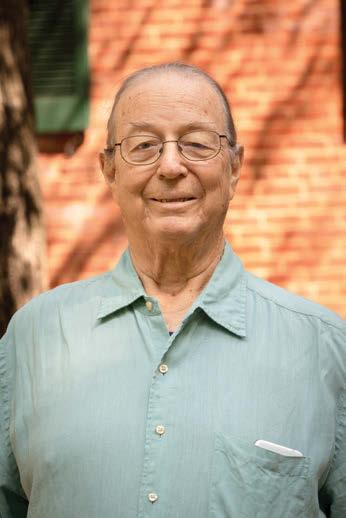 Editorial assistant: Margaret Gaffney
Editorial assistant: Margaret Gaffney
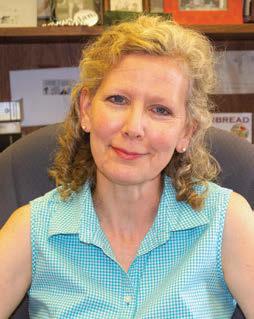 Graphic Designer: Susan Bauer Lee
Graphic Designer: Susan Bauer Lee
Page 2 Winter 2023 The Southern Register DIRECTOR’S COLUMN Published by The Center for the Study of Southern Culture The University of Mississippi 662-915-5993 cssc@olemiss.edu • southernstudies.olemiss.edu Winter 2023 On the cover: Shadow Mother, 2018,
REGISTER STAFF
by Allison Grant
SO U
RN
EGI ST ER A Publication of the Center for the Study of Southern Culture • The University of Mississippi THE NEWSLETTER • PUBLISHED QUAR TERLY • WINTER 2014 OX F ORD MISSISSIPPI, U. S. A
THE
R
Katie McKee
David Wharton
JOHN RASH
Living Blues News
It has been twenty-six years since Irma Thomas has graced the cover of Living Blues and seventeen since we checked in with her after Hurricane Katrina destroyed her club, the Lion’s Den. In this issue, we reconnect with the Soul Queen of New Orleans for a longer conversation about her sixtythree-plus-year career. The talk meanders back and forth from her recent recordings and getting her college degree, to early sessions and her first bands, walking slowly through the life in music of one of the great voices of the blues. It is a regal walk indeed.
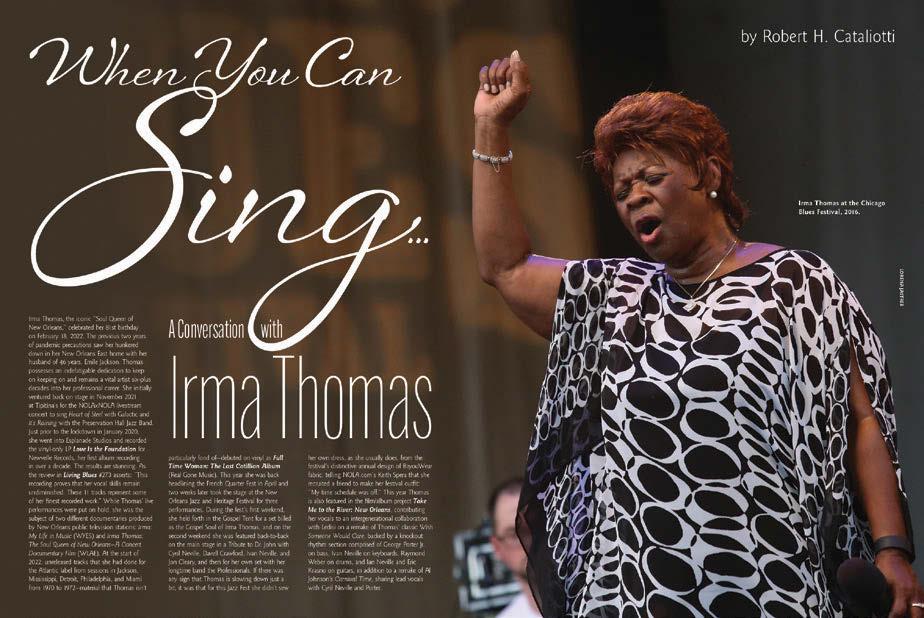
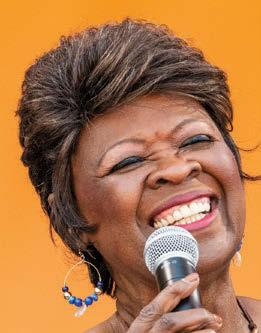
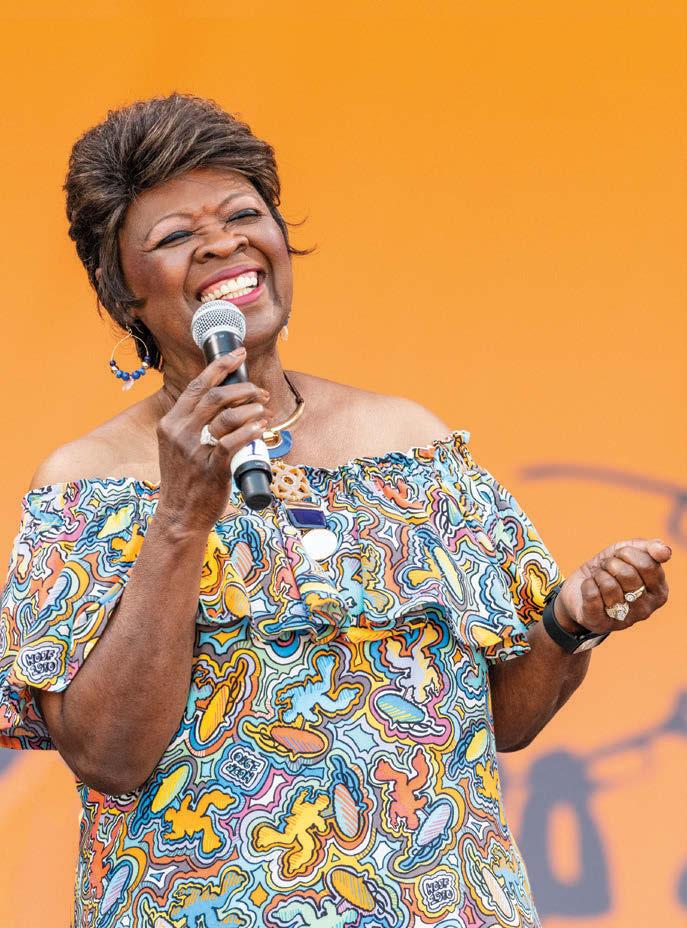
Drummer Merle Perkins has been keeping the beat for sixty years now. He learned drumming in the renowned Spirit of St. Louis Drum and Bugle Corps, and after moving to Chicago in the mid-1960s he soon found himself immersed in the blues. Stints with Freddie King, Buddy Guy, and Eddy Clearwater, among many others, found the cool, relaxed drummer a go-to timekeeper in town. Perkins’s drumming is featured on dozens of CDs, and during the 1990s he even fronted his own band, the Perkolators. As Bruce Iglauer told Perkins, “You play so relaxed, like you’re driving a Cadillac.”
One of my constant joys at LB is profiling exciting new blues talent. Twenty-four-year-old D. K. Harrell impressed me the first time I saw a video of him playing. The youthful exuberance and joy he felt while playing was palpable. Like many younger players these days he spent his woodshedding years studying YouTube videos and honing his chops in front of a screen. Harrell became hooked on B. B. King and plowed through everything he could find on the guitar master. It wasn’t long before he could do a mean B. B. King impression not only on guitar but of King’s stage mannerisms as well. It is a joy to watch his passion about King come to life before a crowd. But Harrell is far more than a B. B. King imitator. He is a damn fine guitar player who is crafting
his own sound and personal voice.
D. K. Harrell is down in New Orleans as I write this, cutting tracks for his first CD. Can’t wait to hear what he has to say.
This issue’s “Let It Roll” column features one of the great blues recordings of the post-1950s era, Muddy Waters’s Folk Singer—a recording that almost never happened. Not only was Muddy dubious about doing a stripped-down “folk” record, but when he finally agreed, Leonard Chess refused to record with the young, second guitarist Muddy brought to the session. Chess didn’t believe the young musician could play the style of country blues he wanted. But Muddy held his ground, and the young guitarist, who just happened to be twenty-seven-yearold Buddy Guy, shines on the recording. Backed by Willie Dixon and Clifton James, the two-hour session is one of the most intimate blues recordings of the era. The wide-open spaces and Muddy’s vocals pushed to the front sound as close to having Muddy sitting and playing in your living room as you’ll ever get.
In this issue we say good-bye to one of Living Blues’ cofounders, Paul Garon. Garon was a complex man who brought his deep knowledge of pre-war blues to the early years of the magazine, as well as his expansive way of viewing the music and musicians who created it.
Brett J. Bonner
Southern Register
The
Winter
Page 3
2023
Let It Roll with Muddy
Over 40 Reviews Inside! IRMA THOMAS MERLE PERKINS D.K. HARRELL REMEMBERING PAUL GARON Issue #281 •Vol. 53, #6 $6.95 US $6.95 www.livingblues.comCAN ® ©
Waters and Buddy Guy
WEDNESDAY, JANUARY 25, AT NOON
Tupelo Room, Barnard Observatory
“Seeing the Unseen”
Michael Fagans
Too often we walk past things without seeing them for what they are or what they could be. Expanding how we think about images allows us to see the world in a different and broader way. This SouthTalk is an expansion of Fagans’s University of Mississippi TEDx talk, allowing for interaction and conversation with attendees.
Michael Fagans is a photojournalist, author, and documentary filmmaker and an assistant professor at the School of Journalism and New Media. Fagans enjoys telling people’s stories, and his journey has taken him to the Navajo Nation, Malawi, India, Austria, Afghanistan, Scotland, Canada, the Dominican Republic, Belize, Guatemala, and now Mississippi.
WEDNESDAY, FEBRUARY 1, AT NOON
Virtual Event
“Blackout: The Continuing Assault against Black Bodies”
Barbara Harris Combs
Blackness in a society built largely on anti-Black sentiments simultaneously renders Black bodies both a heightened sense of visibility and invisibility. In this talk, Combs shares insights from her new book, Bodies out of Place: Theorizing Anti-Blackness in US Society, which examines practices of racial entrenchment as they have manifested in post-Obama expressions of anti-Blackness in discursive, legal, interactional, and extralegal contexts. Combs examines recent incidents of everyday racism against Black persons (the killing of Ahmaud Arbery, the Central Park birding incident, various cases on college campuses, among others) to arrive at a theorization of what expectations about bodies, space, and belonging tell us about the way racism is perpetuated in US society.
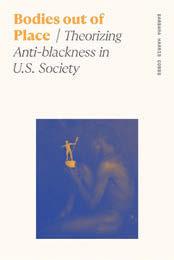
Barbara Harris Combs is professor of sociology and chair of the Department of Sociology and Criminal Justice at
Winter 2023
SouthTalks is a series of events (including lectures, performances, film screenings, and panel discussions) that explores the interdisciplinary nature of Southern Studies. This series is free and open to the public, and typically takes place in the Tupelo Room of Barnard Observatory unless otherwise noted. There are quite a few interesting virtual offerings this semester. Virtual events allow us to connect to larger audiences unable to attend programming in person and allow speakers to participate in the series no matter their location. Visit the Center’s website for up-to-date-information about all Center events.

The Center for the Study of Southern Culture’s programming focus for the 2022–23 academic year is “Race in the Classroom.” Historically, classrooms have functioned as both intensely local spaces and as broader political stages on which debates about equality, identity, and access have played out—nowhere to greater effect than here at the University of Mississippi, where this fall we marked the sixtieth anniversary of the campus’s integration. Classrooms are not only physical sites where Americans have clashed over who will learn. They are also settings that frame what students will learn and how they will conceptualize themselves as residents of a region and a nation. This year’s SouthTalks series will consider how ideas about “race” and understandings of “the South” intersect in the classroom. Our exploration will range from the colonial hemisphere to the postbellum United States to the Jim Crow era to the civil rights movement to present-day classroom controversies. While our interests include the experiences of Black and White southerners, they also extend beyond a biracial understanding of the region to one that accounts for the multiplicity of a historical—and a modern—South.
If you require special assistance relating to a disability, please contact Afton Thomas at amthoma4@olemiss.edu or call 662-915-5993.
Kennesaw State University. Combs is also the author of From Selma to Montgomery: The Long March to Freedom. Her forthcoming book, Black Places and Spaces of Political Empowerment, with coauthors Todd C. Shaw and Kirk Foster, is under contract with Oxford University Press.
WEDNESDAY, FEBRUARY 8, AT NOON
Tupelo Room, Barnard Observatory
“I Don’t Wanna Say the Wrong Thing! How to Reconcile with Race in the Classroom”
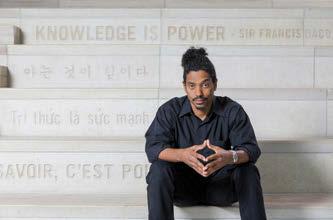
Frederick Gooding Jr.
Discussing topics centering around race can often be awkward and uncomfortable—but it doesn’t always have to be. Uncover and discover how we are closer to racial reconciliation than we think by learning the three key steps we can take inside of our classrooms. This
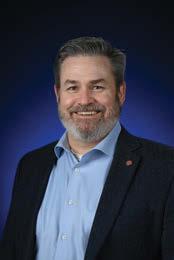
Page 4 Winter 2023 The Southern Register
Frederick Gooding Jr.
Michael Fagans
session will persuade attendees to reflect upon their campus practices and consider additional ways in which they can provide welcoming and culturally relevant institutionalized experiences for both their current and future students.
Frederick Gooding Jr. is an associate history professor and the Dr. Ronald E. Moore Endowed Professor of the Humanities at Texas Christian University in Fort Worth, Texas. Featured in national publications such as the New York Times and USA Today, Gooding critically analyzes images within mainstream culture and engages audiences on racial patterns hidden in plain sight.
THURSDAY, FEBRUARY 9, AT 5:30 P.M.
Overby Auditorium, Overby Center for Southern Journalism and Politics (555 Grove Loop)
Film Screening: Promised Land: A Story about Mound Bayou
The documentary Promised Land: A Story about Mound Bayou was produced by Red Squared Communications Design with support from the Mississippi Heritage Trust and funded by the National Park Service. The forty-minute film will be followed by a moderated discussion and Q&A. This event is cosponsored by the Center for Community Engagement.
WEDNESDAY, FEBRUARY 15, AT NOON
Tupelo Room, Barnard Observatory
“Great Fiction Needs More Than One
Translation: Translating Welty’s Delta Wedding into Japanese”
Koji Motomura and Annette Trefzer
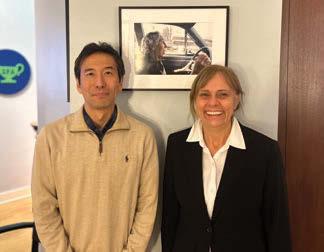
Koji Motomura, who is currently working on the translation of Eudora Welty’s Delta Wedding into Japanese, will take up various issues surrounding his translation, including the overall reception of Welty’s oeuvre in Japan, the Japanese translations of Welty’s major works, a comparison between the two existing Japanese translations of Delta Wedding, and the difficulties and problems of translating Delta Wedding
Koji Motomura is a professor of English at Komazawa University in Tokyo, Japan. He has written twenty-one articles on American literature and published five literary reviews in journals or magazines in Japan. He is the coauthor of fifteen books in Japanese and author of The Dialogue between Texts: A Reading of William Faulkner and Eudora Welty This year, Motomura is a visiting scholar at the Center for the Study of Southern Culture. Annette Trefzer, professor of English at the University of Mississippi, will be in conversation with Motomura. She is the author of Exposing Mississippi: Eudora Welty’s Photographic Reflections and Disturbing Indians: The Archaeology of Southern Fiction
THURSDAY, FEBRUARY 16, AT 1:00 P.M.
Virtual Event
“Vietnamese, Cubans, and Mexicans in the South: An Intertwined History”
Perla M. Guerrero
How are the histories of Vietnamese, Cubans, and Mexicans in the South articulated through national policies but defined through regional specificities? Perla M. Guerrero’s talk will focus on the Asian and Latinx communities in Arkansas in the last quarter of the twentieth century to explore placemaking. Guerrero argues that to fully understand the experiences of Asians and Latinxs in the South, we must also understand the history of place-specific ideologies that are at the center of more recent instantiations of racialized relationships.
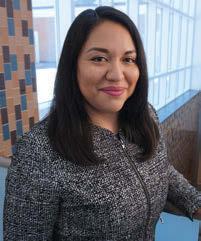
Guerrero is associate professor of American studies and US Latina/o Studies at the University of Maryland, College Park. Her research and teaching interests include relational race and ethnicity with a focus on Latinxs and Asian Americans, space and place, immigration and legality, labor, and US history. She is working on her second book, about deportation and coerced return to Mexico.
This event is cosponsored by the University of Mississippi Center for the Study of Race and Racism.
WEDNESDAY, FEBRUARY 22, AT NOON
Tupelo Room, Barnard Observatory
“Reconciliation: The University and the History of the Ole Miss 89”
W.
Ralph Eubanks and Amirhea Bishop
On the evening of February 25, 1970, during a performance of the clean-cut and upbeat traveling musical ensemble Up with People, members of the Black Student Union engaged in a peaceful protest to get the university to listen to their demands, which included a Black studies program, Black professors and administrators, and scholarships to attract more Black students. Eightynine students were arrested that evening and eventually eight of those eighty-nine were expelled. At the time, none of them yet knew they were under surveillance by the FBI and the university.
W. Ralph Eubanks and Amirhea Bishop will discuss the ways they are seeking to collect and preserve the oral histories of the “Ole Miss 89” and how their work attempts to give the 1970 “Up with People protest” the place it deserves in the history and memory of activism at the University of Mississippi.
W. Ralph Eubanks is the Black Power at Ole Miss
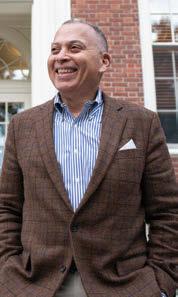
The Southern Register Winter 2023 Page 5
Koji Motomura and Annette Trefzer
KELL KELLUM
Perla M. Guerrero
W. Ralph Eubanks
Faculty Fellow at the Center for the Study of Southern Culture. A writer and essayist whose work focuses on race, identity, and the American South, his most recent book is A Place Like Mississippi : A Journey through a Real and Imagined Literary Landscape.
Amirhea Bishop is a native of Madison, Mississippi. She is an alumna of Jackson State University and is a first-year MA student in the Center’s Southern Studies program. Amirhea serves as Eubanks’s research assistant for the Black Power at Ole Miss Task Force committee.

WEDNESDAY, FEBRUARY 22, AT 5:00 P.M.
Gallery Walk, Barnard Observatory
Within the Bittersweet
Allison Grant
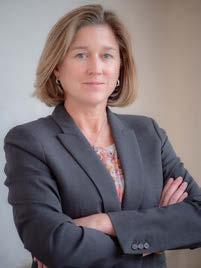
In this SouthTalk, Allison Grant will discuss her exhibition, Within the Bittersweet. She is an artist, writer, curator, and assistant professor of photography at the University of Alabama. Her artworks have been widely exhibited. She holds an MFA from Columbia College Chicago and BFA from the Columbus College of Art and Design.
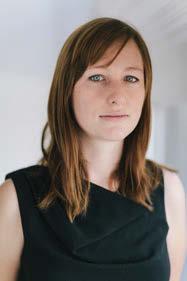
See pages 8 and 9 of this issue for photographs from her exhibition Within the Bittersweet on exhibit in the Gammill Gallery in Barnard Observatory and on the cover of this issue of the Southern Register
WEDNESDAY, MARCH 1, AT NOON
Tupelo Room, Barnard Observatory
Visiting Documentarian
Sarah Garrahan
Join documentary editor Sarah Garrahan as she talks about strategies for editing documentary feature films, including working with a team, how not to get overwhelmed, and practical skills that help get films to the finish line.
Sarah Garrahan is a documentary producer and editor from San Antonio, Texas. She is based in Los Angeles, California. She co-produced and was an additional editor on the hybrid documentary The Infiltrators by Cristina Ibarra and Alex Rivera, which premiered at the Sundance Film Festival in 2019 and was awarded the NEXT Audience and Innovator Awards. She edited the Emmynominated feature documentary Building the American Dream by Chelsea Hernandez, which premiered at SXSW in 2019 and was broadcast nationally on PBS. She holds
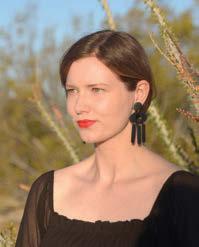
an MFA in Experimental and Documentary Arts from Duke University.
WEDNESDAY, MARCH 1, AT 5:30 P.M.
Tupelo Room, Barnard Observatory
An African American Dilemma: A History of School Integration and Civil Rights in the North
Zoë Burkholder
Since Brown v. Board of Education in 1954, Americans have viewed school integration as a central tenet of the Black civil rights movement. Yet, school integration was not the only—or even always the dominant—civil rights strategy. At times, African Americans also fought for separate, Black-controlled schools dedicated to racial uplift and community empowerment.
To date, much of what we know about the history of school integration comes from the South. In her book An African American Dilemma: A History of School Integration and Civil Rights in the North, Burkholder offers the first and most comprehensive analysis of the history of Black struggles for educational equality in the North. She argues that since the 1840s, African Americans have employed multiple strategies to fight for equal educational opportunities, including school integration and its opposite—separate, Black-controlled schools. This study considers what is unique about Black struggles for school integration in the North, how these struggles differed from those in the South, and why these regional distinctions matter in shedding light on the complex relationship between school integration and the larger Black freedom struggle.
Zoë Burkholder is an historian of education, professor of educational foundations, and the founding director of the Holocaust, Genocide, and Human Rights Education Project at Montclair State University.
WEDNESDAY, MARCH 8, AT NOON
Tupelo Room, Barnard Observatory
What Has Been Will Be Again: Place, Time, and the Politics of Remembrance
Jared Ragland
In a moment of pandemic, protest, and polarization, photographer Jared Ragland has journeyed across more than twenty-five thousand miles and into each of Alabama’s sixtyseven counties to survey his home state’s cultural and physical landscape. By tracing the Trail of Tears, the Old Federal Road, and Hernando de Soto’s 1540 expedition route, What Has Been Will Be Again contends with Alabama’s fraught past and present and reveals problematic patterns at the nexus of broader American identity. In this presentation, Ragland will discuss the project’s strategic focus on the importance
Page 6 Winter 2023 The Southern Register
Amirhea Bishop
Allison Grant
Zoë Burkholder
Sarah Garrahan
of place, the passage of time, and the political dimension of remembrance as means of confronting White supremacist myths of American exceptionalism.
Jared Ragland is a fine art and documentary photographer. His visual practice critically confronts issues of identity, marginalization, and history of place through social science, literary, and historical research methodologies.
The UM Department of Art and Art History and the Do Good Fund helped make this exhibit and presentation possible. Ragland’s exhibit, What Has Been Will Be Again, will show in the Gammill Gallery February 27–March 31, 2023. The Center has also exhibited his work in a photo essay of the same name in Study the South, the Center’s online journal.
WEDNESDAY, MARCH 22, AT NOON
Student Union Auditorium, Room 124
“Truman Capote, Ellen DeGeneres, and Miley Cyrus: Southern Stars and the South’s Queer Myths”
Tison Pugh
How do queer southern celebrities adapt the myths of the South to burnish their personas? Pugh examines three vastly different queer southern stars—Truman Capote, Ellen DeGeneres, and Miley Cyrus—to consider the ways in which the South’s mythologies influence their presentation of their selves, their star personas, and their sexualities. Capote embodied gothic southern decadence during an era of blanket homophobia, DeGeneres presented herself as an avatar of kindness until the façade crumbled, and Cyrus crossed red state/blue state borders first by enacting the tween fantasies of Hannah Montana and then by representing a new brand of out and proud pansexuality. For each of these celebrities, and for a range of other southern stars, queer or not, the South is inextricably linked to their stardom, and its myths both haunt and inspire their celebrity in myriad fascinating ways.
Tison Pugh, Pegasus Professor of English at the University of Central Florida, is author or editor of over twenty volumes, including The Queer Fantasies of the American Family Sitcom.
This event is in partnership with the Sarah Isom Center for Women and Gender Studies and the Center for Inclusion and Cross-Cultural Engagement
WEDNESDAY, APRIL 5, AT NOON
Tupelo Room, Barnard Observatory
“Civil War Memory and the History of Homosexuality”
Andrew Donnelly
Two developments took place at the end of the nineteenth century: one, a
national shift of sympathies retrospectively toward the lost Confederate cause and, two, the emergence of homosexuality as an identity in medicine and the law. This talk brings these two seemingly disconnected phenomena together to narrate how the emergence of homosexuality operated alongside Lost Cause ideology to foster nostalgia for a pre-homosexual and pre–Civil War past.
Andrew Donnelly is a visiting assistant professor of English and Southern Studies at the University of Mississippi. His work on Civil War–era culture and the history of sexuality has been published in Civil War History, American Literature, Women’s Studies, and other venues. He also works with the Freedom Project Network in Mississippi and launched their Freedom Summer Collegiate program, which brings PhD students and university faculty members to teach summer courses at the Freedom Projects in Sunflower, Rosedale, and Meridian, Mississippi.
WEDNESDAY, APRIL 26, AT NOON
Tupelo Room, Barnard Observatory
“Race and the College Mobility Trap”

Ryan Parsons
Educators are used to telling students that education, and especially higher education, is a reliable pathway to social mobility. For many students, especially young people of color from disadvantaged communities, this pathway is marked by detours, potholes, and other obstacles to “conventional” success. In this talk, Parsons revisits the idea of “the mobility trap”— situations in which people have to choose between mobility options that make sense locally and mobility options that make sense nationally—through interviews with a cohort of current Black college students from Sunflower County, Mississippi. These students are enrolled in a range of institutions from local community colleges to private HBCUs to the University of Mississippi. How are they doing? What does success in college mean for their social networks at home? What do these successes (and challenges) mean for higher education?
Ryan Parsons is an assistant professor of sociology and Southern Studies at the University of Mississippi. His teaching helps students think critically about what it means to study a community, and in particular a community they have chosen to call home.
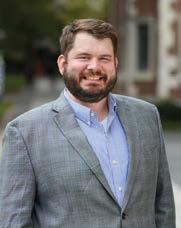
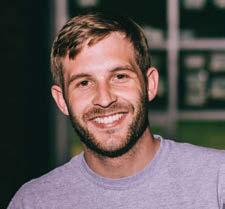
FRIDAY, MAY 5, AT 6:00 P.M.
Gammill Gallery and Tupelo Room, Barnard Observatory
Spring Documentary Showcase
The Spring Documentary Showcase is a celebration of the work by our documentary students. Each artist will present their work, followed by a Q&A session.
The Southern Register Winter 2023 Page 7
Tison Pugh
Andrew Donnelly
Ryan Parsons
Negotiating Beauty and Heartbreak through Photographs
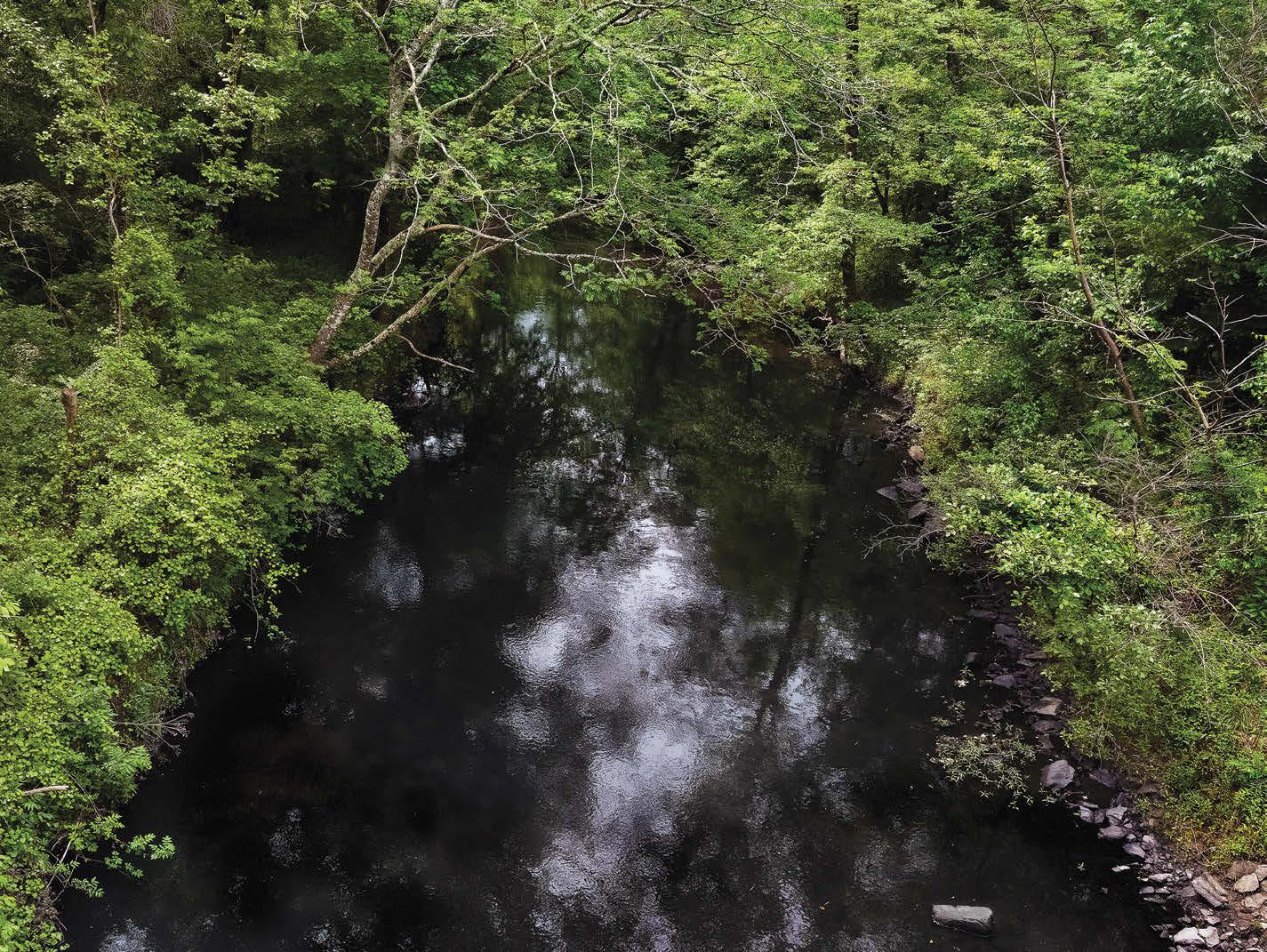
New Exhibition on View in Gammill Gallery
Text and photos by Allison Grant
Within the Bittersweet is a dark pastoral narrative about raising my children amid concerns about the impacts of climate change and environmental contamination. The photographs in the series were taken within a one hundred–mile radius of my home in Tuscaloosa, Alabama, where dense vegetation and natural beauty intersect with industrial and fossil fuel facilities that dot our region. These industries spread particulates and toxins across the terrain and into our bodies and the atmosphere. In my artwork, the dark realities of the landscape we live
in are interlaced with representations of my deep love for my children and the physical world around us—a living tapestry of incredible complexity that my daughters are only just coming to know. Climate change will undoubtedly reshape the world they inherit, and through photographs I negotiate the beauty and heartbreak of raising them on a wondrous planet in the midst of such rapid and impactful change.
The project also grapples with questions surrounding the social and environmental ethics that allow contaminating
Page 8 Winter 2023 The Southern Register GAMMILL GALLERY
Black Water, Texas Creek Contaminated by Mine Leak
industries to continue to operate near homes, schools, and communities. Many of the sites in my photographs selfmonitor for compliance with environmental regulation and some are allowed to continue to operate despite past violations of the law. Industry continues to emit carbon into the atmosphere without regulatory caps. By combining documentary and performative approaches in my photographs, I consider these realities at the intersection of my own familial concerns, dreams, and imaginings—highlighting a shift in the experience of parenthood for my generation, the first to raise children under the existential threat of escalating climatic shifts.
Allison Grant’s work is on view in the Gammill Gallery until February 24, and her photograph, Shadow Mother, is the cover photograph of this issue of the Southern Register.
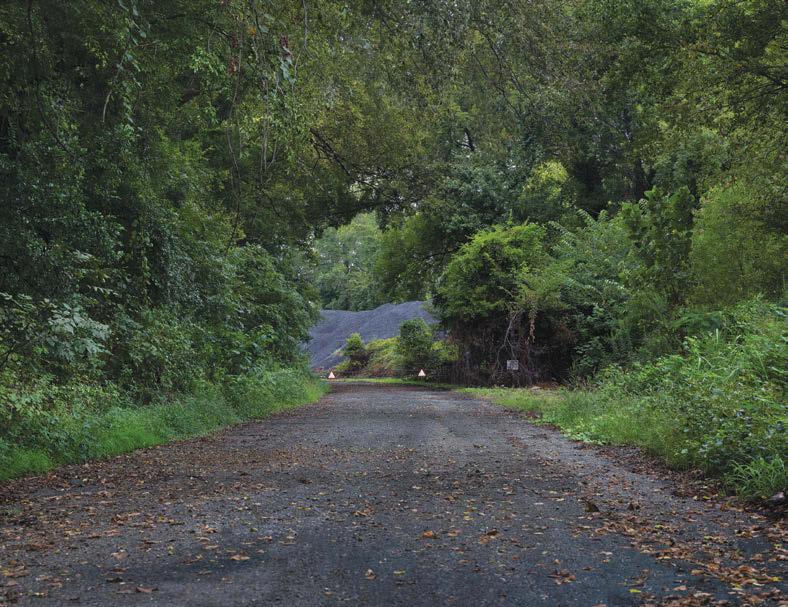
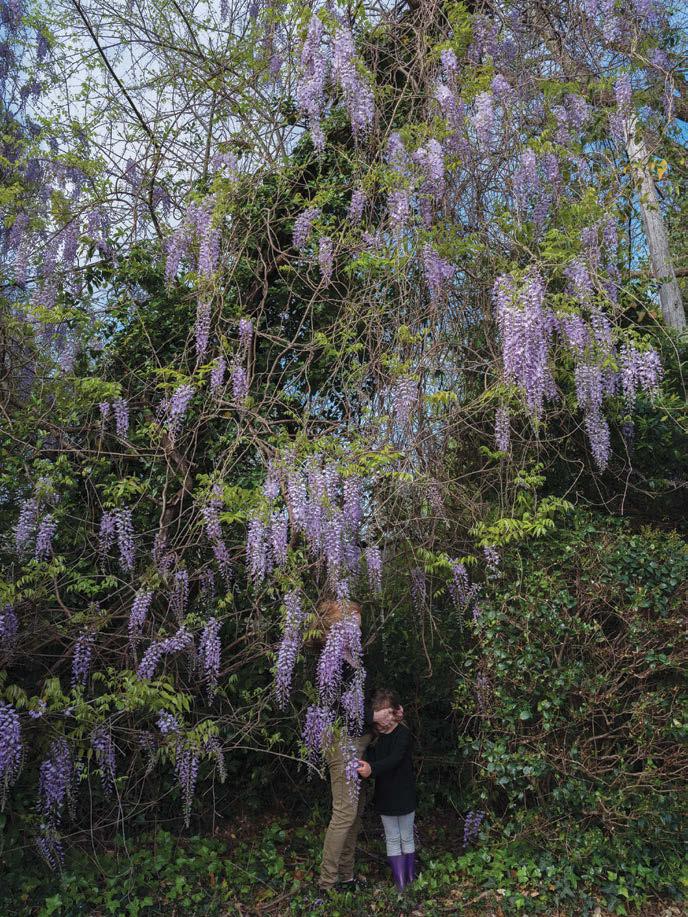
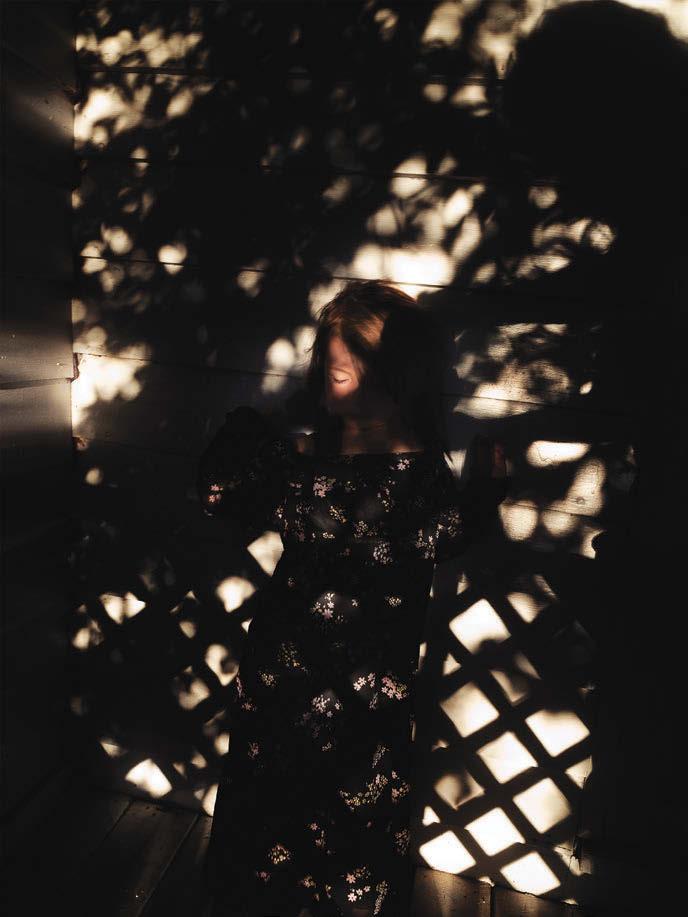
Grant is an artist, writer, curator, and assistant professor of photography at the University of Alabama in Tuscaloosa. Her work has been exhibited at the DePaul Art Museum, the Catherine Edelman Gallery, and the Weston Art Gallery, among others. She was the 2019 recipient of the Developed Work Fellowship from the Midwest Center for Photography, and she was shortlisted for the 2019 FotoFilmic Mesh Prize. Her work is held in collections at the DePaul Art Museum, the Columbia College Chicago, and the King County Portable Works Collection in Seattle, Washington. Her essays have appeared in Minding Nature Journal and INCITE: Journal of Experimental Media, as well as numerous artist publications and exhibition catalogs. She holds an MFA from Columbia College Chicago and a BFA from the Columbus College of Art and Design.
Gammill Gallery Calendar
Spring 2023
January 9–February 24: Alison Grant
February 27–March 31: Jared Ragland
April 3–May 27: Student works
The Southern Register Winter 2023 Page 9
Dreamer
In the Wisteria
Petroleum Coke Storage Near the School, 2019
The Twenty-Ninth Oxford Conference for the Book
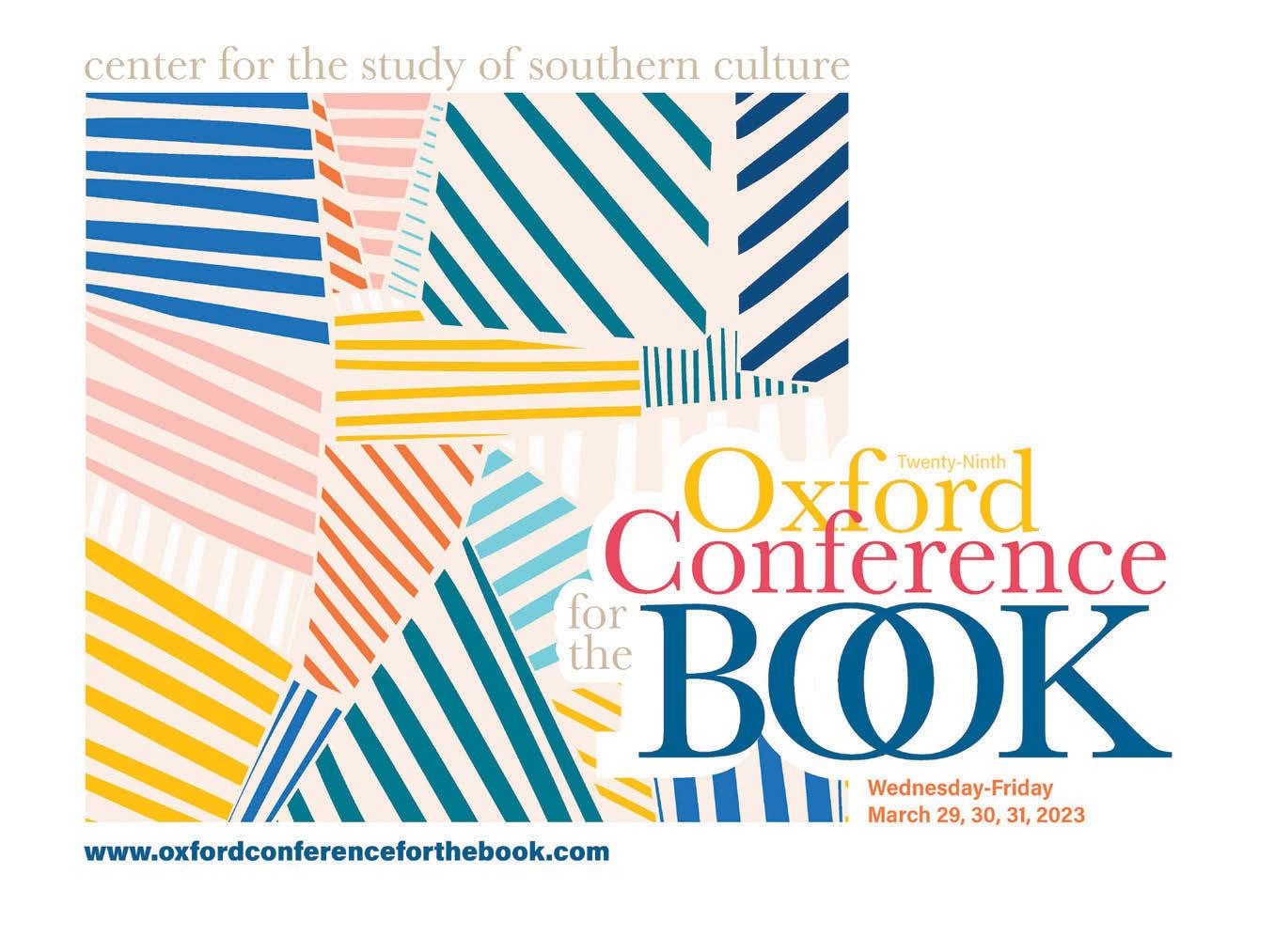
A Celebration of Writers and Writing in Mississippi’s Literary Capital
Among literature enthusiasts, it’s no secret that Oxford, Mississippi, has long been a magnet for writers. This spring, their numbers will multiply as more than thirty of the nation’s leading and emerging authors, poets, scholars, and artists gather for the annual Oxford Conference for the Book. Across the University of Mississippi campus and the city’s historic downtown Square, three days of panels, discussions, and events will transform William Faulkner’s hometown into a literary playground of cutting-edge conversation. Mark your calendars: March 29–31, 2023, promises a book conference you won’t want to miss.
Page 10 Winter 2023 The Southern Register
The twenty-ninth iteration of the conference is more expansive than ever, with help from national sponsors and partners across town and campus, including the National Book Foundation, the Willie Morris Awards for Southern Writing, and University of Mississippi. After Covid-19 and weather warnings interrupted the conference over the past three years, the conference is thrilled to partner with a broad spectrum of local organizations and communities in new, engaging ways. Art and music events add to this year’s already diverse lineup of book discussions and scholarly panels, all of which are free and open to the public. All venues—from the J.D. Williams Library, to St. Peter’s Episcopal Church, to the Lafayette County Courthouse—are within walking distance and make for a widely accessible event.
“This year’s conference might just be the most expansive and wide-ranging Oxford Conference for the Book yet,” said Jimmy Thomas, conference director. “We’ve broadened our vision to include cultural and historic tours, visual arts, and music performances, along with readings and conversations on the written word. We’ll hold sessions in a number of new venues in downtown Oxford and across the university campus. This really is a community event with nationwide appeal.”
In addition to the three-day affair, an OCB co-sponsored, pre-conference event will honor a new edition of Hubert Creekmore’s The Welcome in the author’s nearby hometown of Water Valley on Friday, March 24. Philip Gordon, author of the edition’s introduction will speak at Violet Valley Books, Mississippi’s only LGBTQ+ bookstore, with a reception at Bozart’s Gallery to follow.

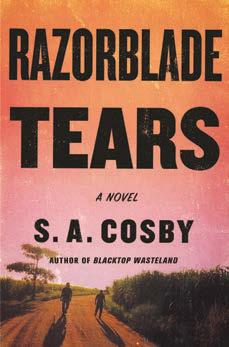
Also new this year, the University of Mississippi Museum and the Campus Slavery Research Group will kick off the conference with historical and cultural context by guiding free tours on Wednesday, March 29. The tours precede the annual Authors’ Welcome Party at Memory House, one of few ticketed events, for which tickets can be purchased on the conference website.
Free live music concludes each evening, beginning with author and Southern Folkways

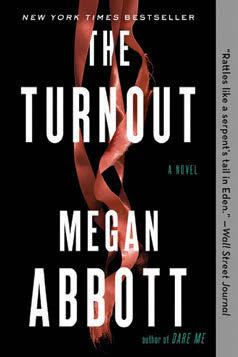
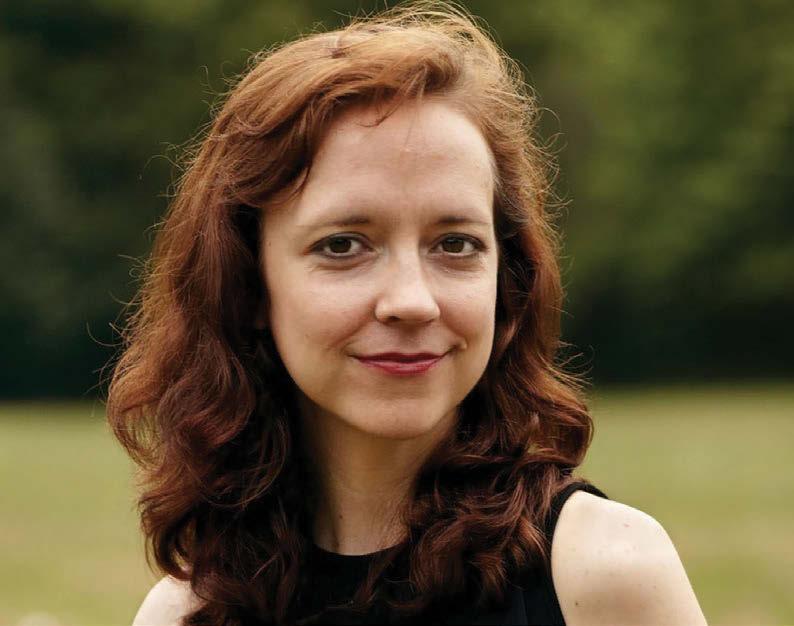
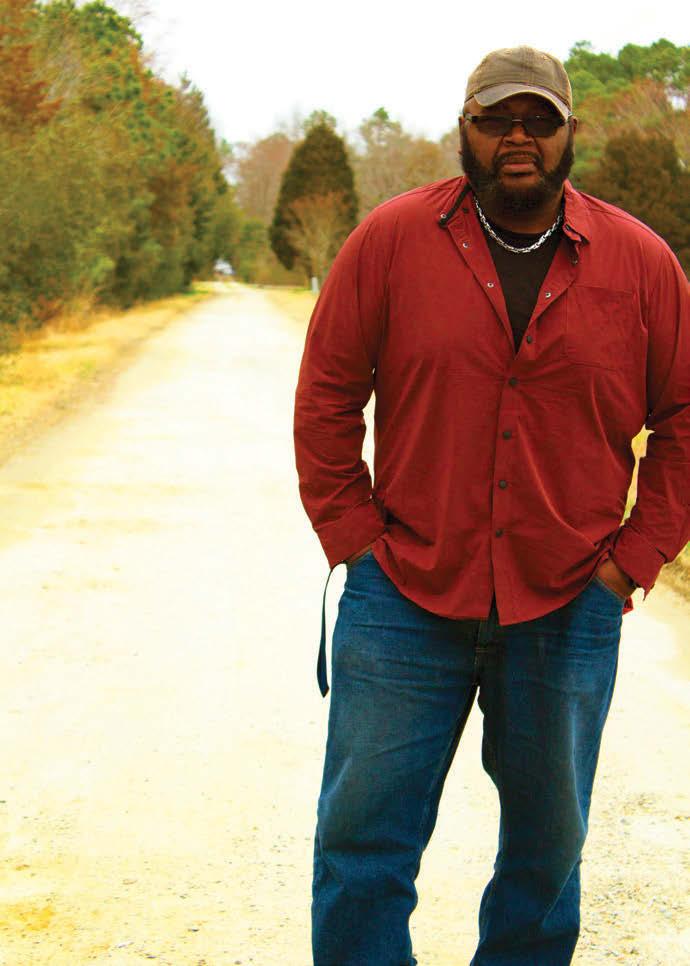
The Southern Register Winter 2023 Page 11
S. A. Cosby
SAM SAUTER PHOTOGRAPHY
Megan Abbott
DREW REILLY
Tarfia Faizullah
singer-songwriter Charlie Parr at Proud Larry’s on Wednesday. Parr will perform music from his album Last of the Better Days Ahead , inspired by his novel of the same name. The annual Thacker Mountain Radio show is always a highlight on Thursday, and this year will feature author Nic Brown ( Bang, Bang, Crash ) at the Lyric. Friday, “Noir at the Bar” will have attendees on the edge of their booth at Ajax, as Ace Atkins discusses crime fiction with S. A. Cosby ( Razorblade Tears , Blacktop Wasteland , and My Darkest Prayer ), Megan Abbott ( The Turnout ), and Eli Cranor ( Ozark Dogs and Don’t Know Tough ), ending with a show by local musicians.
The themes of movement and identity take one of the front-row seats this year. Thursday, March 30, begins with a discussion on “Family, Migration, and Home” between author Anjali Enjeti (Southbound: Essays on Identity, Inheritance, and Social Change, and The Parted Earth) and Sheila Sundar (Habitations). Friday afternoon, Robert Rea (deputy editor of The Southwest Review) hosts “Books on the Border,” featuring Mexican authors Juliàn
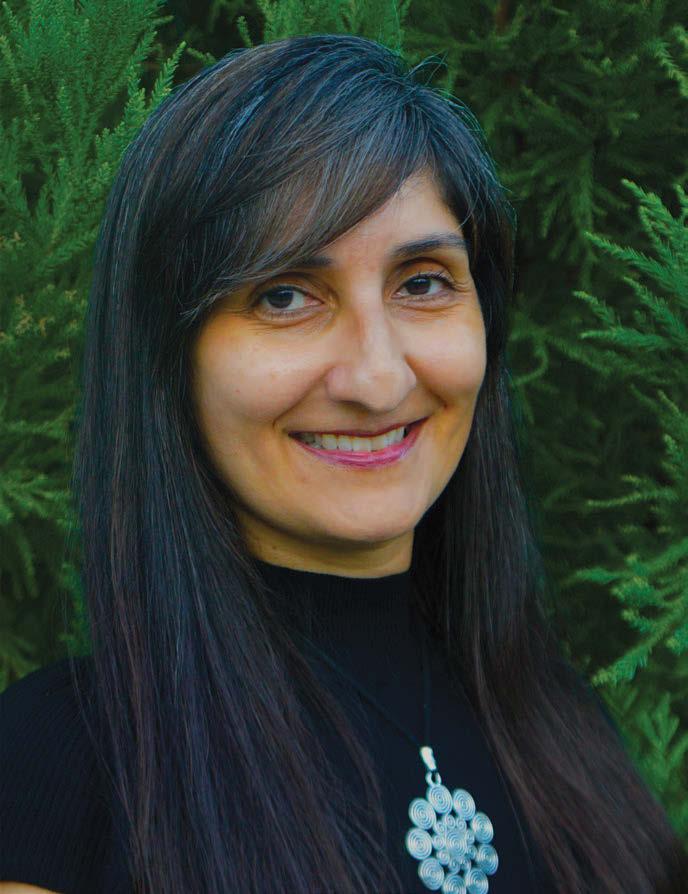
Herbert (Bring Me the Head of Quentin Tarantino), Gabriela Alemán (Family Album), and Yuri Herrera (Ten Planets).
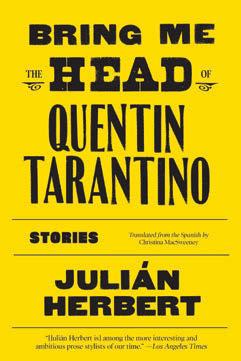
Among the more anticipated panels is “The National Book Foundation Presents” session in which National Book Award–honored authors
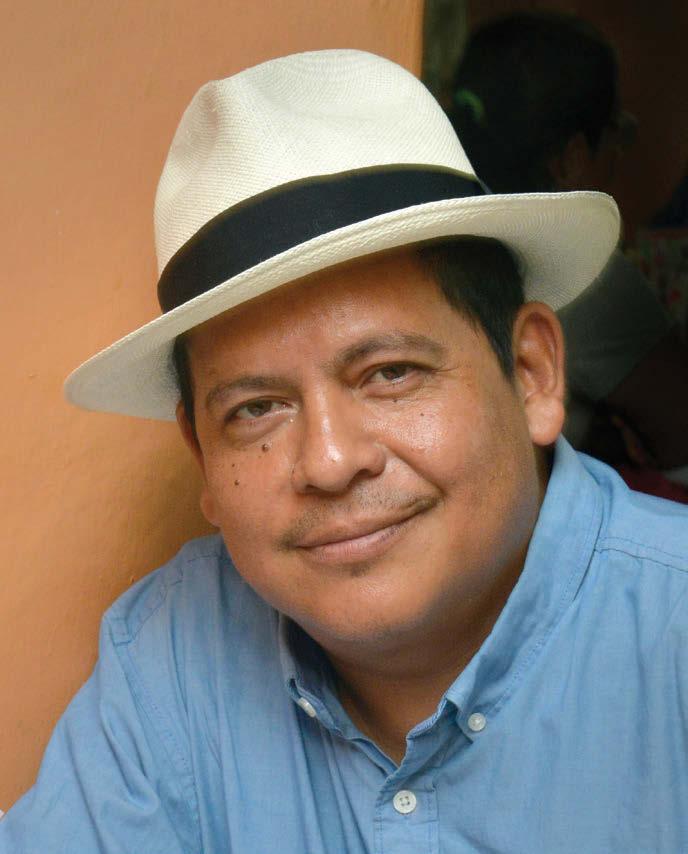
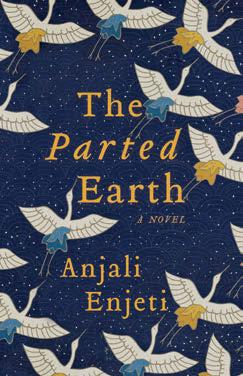
Jonathan Escoffery (If I Survive You) and Deesha Philyaw (The Secret Lives of Church Ladies) will join podcaster moderator
Jerid P. Woods (a.k.a. Akili Nzuri, @ablackmanreading)
on Thursday morning. Philyaw, also a Grisham Writerin-Residence and visiting professor at the University of Mississippi, will later assume the moderator’s chair in a genrespanning panel with poet Khalisa Rae (Ghost in a Black Girl’s Throat), nonfiction author Danté Stewart (Shoutin’ in the Fire: An American Epistle), and novelist Chantal James (None but the Righteous) in conversation Friday morning.
Poetry writers and fans will enjoy an event located at the Southside Gallery, hosted by University of Mississippi professor, poet, and writer Beth Ann Fennelly. A past Poet Laureate of Mississippi, Fennelly will moderate a panel with poets Tarfia Faizullah (Registers of Illuminated Villages and Seam), James Hoch (Last Pawn Shop in New Jersey), and Mahogany L. Browne (Chrome Valley and I Remember Death by Its Proximity to What I Love) in the gallery Thursday afternoon. Cathy Fussell’s literature-inspired quilts in the exhibition Southern Lit 101 will fill the walls surrounding the panel with scenes familiar to conference patrons.
The conference is excited to welcome Celia Naylor whose book, Unsilencing Slavery: Telling Truths about Rose Hall Plantation, Jamaica, is gaining national attention. Naylor will be in conversation with UM associate professor of anthropology and Southern Studies Jodi Skipper (Behind the Big House: Reconciling Slavery, Race, and Heritage in the US South). The Willie Morris Awards brings together Wayne Flynt (Afternoons with Harper Lee) and David Rae Morris (Love, Daddy: Letters from My Father) for “Conversations with Friends and Family,” which will, no doubt, be a memorable and intimate discussion.
Page 12 Winter 2023 The Southern Register
Anjali Enjeti
Julián Herbert
The weekend concludes with a book signing and ceremony for the Willie Morris Awards in Southern Writing, which will announce the 2023 winners in fiction, poetry, and—new to the roster—nonfiction at Off Square Books. Works by conference authors will be available for purchase via Square Books, the historic Oxford bookstore and longtime sponsor of the event. Discounted hotel rooms for those traveling to Oxford are available at the Inn at Ole Miss and at the Graduate Oxford, both of which are convenient to the conference events. With additional authors added to the lineup daily, you’ll want to check for updates on the conference’s website oxfordconferenceforthebook .com and Instagram @ oxford_book_conference.
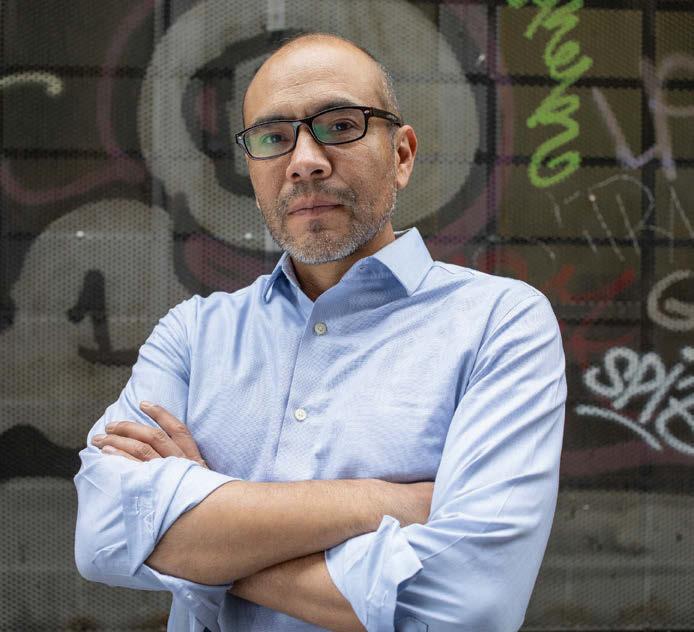
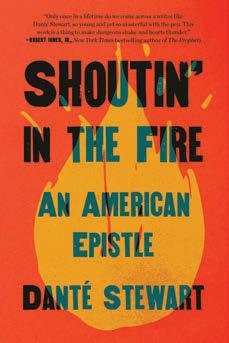
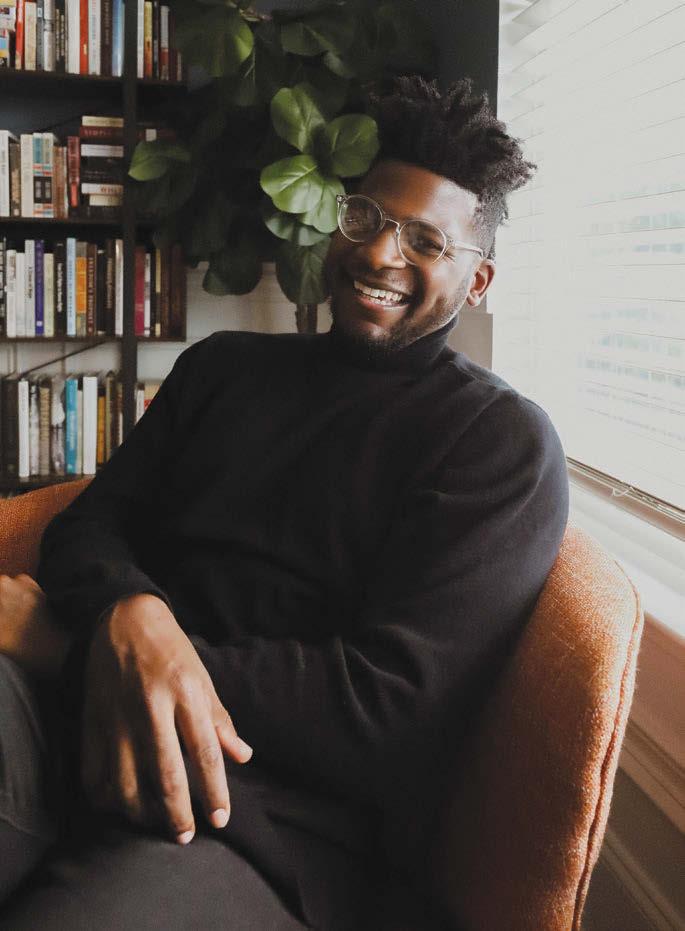
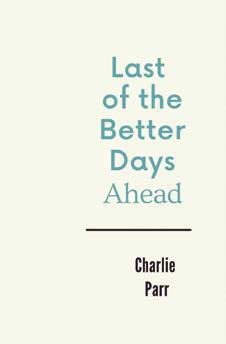

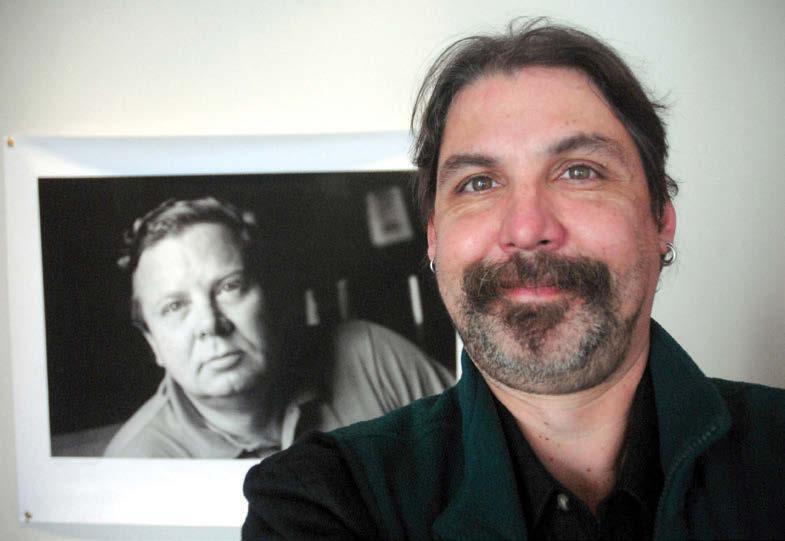
For questions, contact conference director Jimmy Thomas at jgthomas@olemiss.edu.

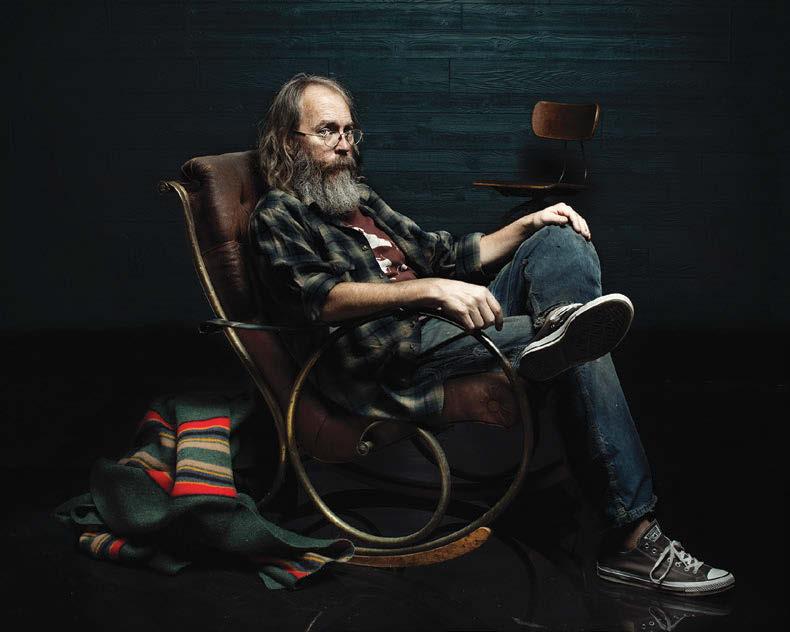
The Southern Register Winter 2023 Page 13
Lucy Gaines
David Rae Morris
Charlie Parr
TAJA AMBROSE
Danté Stewart
LISBETH
Yuri Hererra
SALAS
The Willie Morris Awards Ceremony to Close Twenty-Ninth Oxford Conference for the Book
The Willie Morris Awards for Southern Writing features some of the year’s best in contemporary literature. The award-winning writers have created poetry, nonfiction, or fiction in the past calendar year that addresses southern themes with an air of hope, in the spirit of the awards’ namesake. In a region whose problematic past lingers in systemic racism and economic extraction, these authors find opportunity for progress.
The Willie Morris Awards honors rising authors and, by extension, spreads appreciation for contemporary southern literature as a whole. Authors, publishers, and readers nominate hundreds of novels and poems, from which a national panel of judges selects the best of those that effectively engage or reflect upon the complexities of the American South. Past winners include Nathan Harris, Tiffany Quay Tyson, and Tom Franklin for fiction, and Monica Lee Weatherly, Christian Garduno, and Melissa Cannon for poetry. With nonfiction added as a 2023 category, the awards are expanding their repertoire to a genre with increasing popularity. Since moving to the University of Mississippi in 2019, the Willie Morris Awards have become an annual event integral to the Oxford Conference for the Book, and a staple of UM’s Department of Writing and Rhetoric, which now directs it.
Mississippi author Willie Morris served as the University of Mississippi’s writer-in-residence from 1980 to 1991, where he stimulated students’ creativity and passion for the written word. His own works, notably North toward Home and My Dog Skip, reflect his homeplace with both honesty and optimism. Morris was known by his friends as much for his lighthearted personality as for his appreciation of writing. He held a tradition of “awarding” fellow authors over
dinner at a local steakhouse, the Sizzler, using one of the many bowling trophies decorating the walls. Dave Williams and his wife, Reba, sought to continue Morris’s tradition, aptly suited for the Oxford Conference for the Book and the Department of Writing and Rhetoric.
Dave and Reba White Williams spent forty years working in finance while remaining dedicated to the arts. Reba earned her BA in English at Duke, her MBA at Harvard, a PhD
in art history at CUNY, and an MA in writing at Antioch. She has been president of the New York City Art Commission in addition to serving on the New York State Council for the Arts. Dave Williams was Willie Morris’s roommate at the University of Texas, earned his MBA at Harvard, and later became chairman and CEO of Alliance Capital. Upon hearing that their niece had not yet read To Kill a Mockingbird, both Dave and Reba expanded their advocacy to include southern writing and started the Willie Morris Awards in 2008.
The 2023 Oxford Conference for the Book will conclude with a session by Willie Morris Awards winners. Hosted at Off Square Books on the historic downtown square, the session will feature discussions with the awardwinners from all three categories. There will be a book signing afterwards where patrons can visit with the many authors traveling to Oxford for the conference. The event is free and open to the public.
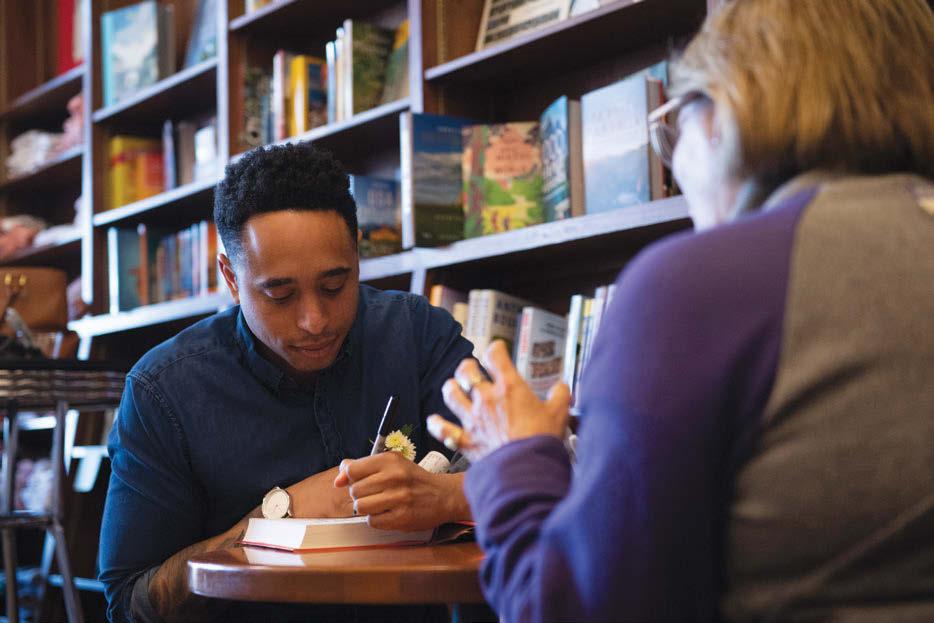
Page 14 Winter 2023 The Southern Register
Lucy Gaines
Fiction winner, Nathan Harris, signing his book, The Sweetness of Water, at Off Square Books last year
BRUCE NEWMAN
Supporting Reading Experiences for Children
Scotts Provide Gifts to Children’s Book Festival to Pay Tribute to Mother
Elementary school students will be encouraged to love reading thanks to a University of Mississippi endowment paying tribute to the late Elaine Hoffman Scott of Little Rock, Arkansas, remembered for her great passion for education and the arts.
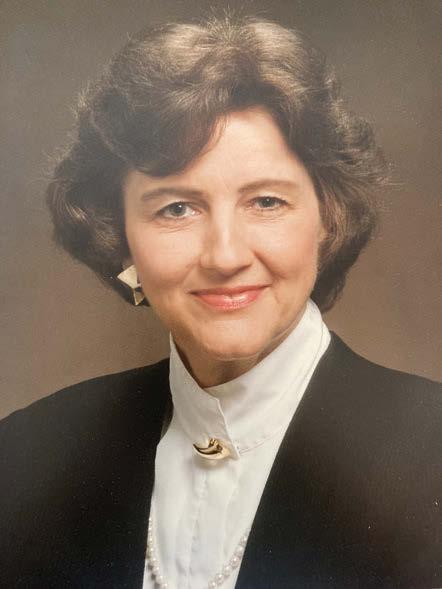
The Elaine Hoffman Scott Memorial Endowment and Memorial Fund—which will support the Children’s Book Festival—were established with $72,000 in gifts from her son, Bran Scott of San Jose, California, and daughters, Melissa Scott of Chapel Hill, North Carolina, and Caitlin Scott of Petaluma, California.
Part of UM’s Oxford Conference for the Book—which highlights achievements of seasoned and emerging southern writers through an annual gathering of teachers, publishers, booksellers, writers, scholars, agents, editors and booklovers—the Children’s Book Festival serves more than 1,200 first graders and fifth graders from schools in Lafayette County and Oxford, Mississippi.
Bran Scott said the gift was inspired by the desire to establish something “lasting and life-giving” that provides a tangible benefit to the causes his mother valued. “My mom was passionate about education and about reading, particularly for children. She understood the lifelong impact a childhood with books could produce. She believed that books open doors to other worlds—real and imaginary—and that a child who has experienced a universe of worlds through books becomes an adult who believes bigger and better worlds are possible,” he said. “The Children’s Book Festival was the perfect choice because it’s an event that engenders the love of books and reading in the children of a community she dearly loved.” Melissa Scott agreed, saying, “Mom thought every person should have the chance to experience everything books can bring, and
she thought the best way to help that happen was to make books available to children as early as possible.”
Daughter Caitlin Scott of Petaluma, California, said her mother loved a good story. “As the years passed, my mom became increasingly convinced of the importance of being able to read, to learn the great stories of history and to tell one’s own story. A formative experience of my life was being able to volunteer with her at RIF book distributions, where each child got to choose two books to take home and keep forever. The excitement was palpable, as children rushed to the tables of books to make their selections. I also boldly gave the kids advice about what books they should choose. My mother’s time in life has ended, but I know she would like good stories to continue,” Caitlin Scott said. “She would like to see all children empowered to read the stories that intrigue and motivate them and to write stories of their own lives.”
Center director, Katie McKee, shared how the honoree was involved with the Center. “For many years, Elaine Scott was an enthusiastic participant in various dimensions of life at the Center
for the Study of Southern Culture. She was an early and long-standing member of the Center’s advisory committee, a faithful attendee of the Faulkner and Yoknapatawpha Conference, and a regular participant in the Oxford Conference for the Book. Elaine had a particular soft spot for the Children’s Book Festival, and now that event will flourish for years to come with this kind support from her children. We are deeply grateful to them for supporting her legacy,” McKee said.
Afton Thomas, associate director of programs for the Center for the Study of Southern Culture, said, “The Children’s Book Festival is one of my favorite events each year because of the community partnerships. None of this is possible without each partner.” Each year the Center for the Study of Southern Culture, the Lafayette County Literacy Council, Junior Auxiliary of Oxford, Square Books, Jr., and the Lafayette County & Oxford Public Library work together to select and host authors who present programs to first and fifth graders. Lafayette County and Oxford Elementary School librarians make author suggestions and create activities for the children to enjoy during the week the authors visit. The conference then invites those authors to sign books at Square Books, Jr.
To make a gift to the Elaine Hoffman Scott Memorial Endowment, send a check with the fund’s name written in the memo line to: University of Mississippi Foundation, 406 University Ave., Oxford MS 38655. To donate online, go to give.olemiss.edu. For more information on supporting the Children’s Book Festival, contact Delia Childers, associate director of development for the College of Liberal Arts, at dgchilde@olemiss.edu or 662-915-3086.
The Southern Register Winter 2023 Page 15 CENTER NEWS
Tina H. Hahn
Elaine Hoffman Scott
RECONCILIATION TRUTH&
Ralph Eubanks to Document 1970 Fulton Chapel Protest Arrests
On the night of February 24, 1970, eight years after James Meredith integrated the University of Mississippi, eighty-nine Black students were arrested for protests on campus, including a protest in Fulton Chapel during an Up with People concert. Earlier that day they had presented twenty-seven demands for inclusivity on campus to then-Chancellor Porter Fortune. Eight of those eighty-nine students who were involved in the nonviolent protest were expelled. Many of those arrested did not return to campus for decades. For some, their return wasn’t until 2020, on the fiftieth anniversary of the arrests.
On February 24 and 25, 2020, the university held a two-day “Black Power at Ole Miss” program, which aimed to “remember and honor the activism and sacrifice of Black students, reckon with the harm and trauma caused by the actions of the university and federal and state law enforcement, and seek reparative solutions grounded in truthtelling and justice.”
To further the work of the 2020 event, the university appointed the Black Power at Ole Miss Task Force and charged it with guiding repair, reconciliation, and relationships with those involved in the protests and arrests. The task force is composed of current UM faculty, staff, and students, as well as several former students who participated in the protests and
their family members. Emphasizing the need for longevity and continued impact, one of the task force’s core recommendations is the creation of a faculty fellow position and a postdoctoral fellow position.
During fall 2022, W. Ralph Eubanks assumed the faculty fellow position. Eubanks will serve in the faculty fellow position for four years or until relevant work is completed to elevate the stories and experiences of those affected by the 1970 campus protests and arrests and to continue fostering avenues of reconciliation.
Eubanks, a dedicated member of the task force, has served as a visiting professor of English and Southern Studies at the Center for the Study of Southern Culture since 2017. He is the author of three books, including his most recent, A Place Like Mississippi: A Journey through a Real and Imagined Literary Landscape. The University of Mississippi alumnus was recognized with a 2022 Public Humanities Award by the Mississippi Humanities Council—the Reflecting Mississippi Award—for his work as a memoirist and literary scholar.
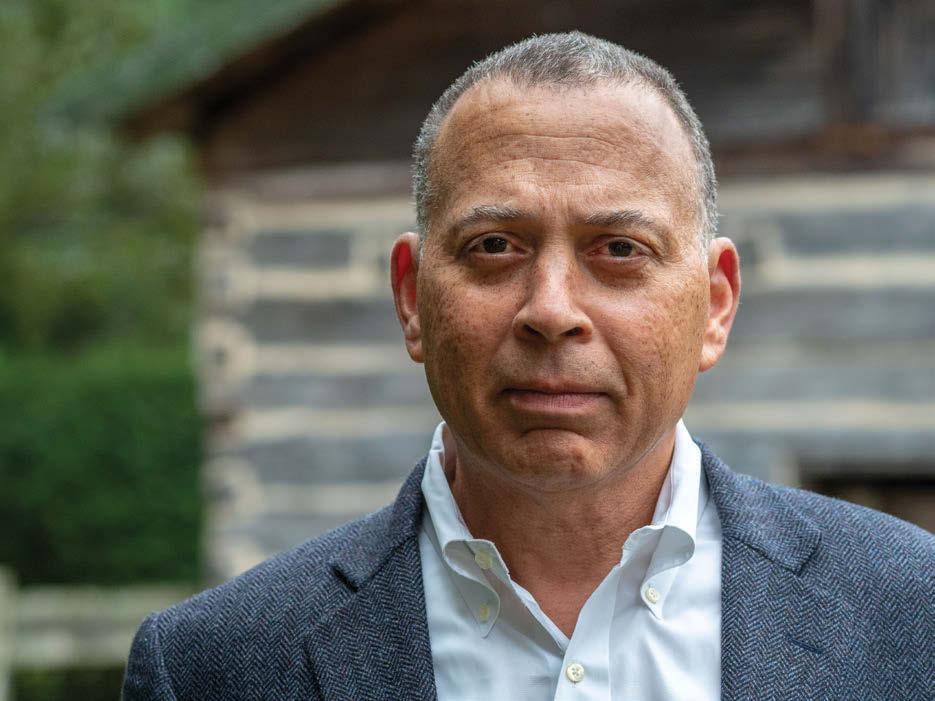
Page 16 Winter 2023 The Southern Register
W. Ralph Eubanks
In this new role, Eubanks will continue the archival documentation of the protest and oral history collection featuring the eighty-nine protesters. He will also oversee the creation of the full written history resulting in a print publication and video documentary. Eubanks and his postdoctoral fellow will also play a key role in advancing commemorations on campus. Coordinating curricular implementation and instructional materials related to the protest will also be an important component of this work.
Recently, Lisa Stone in University Marketing and Communications caught up with Eubanks to discuss his new role at the university.
Lisa Stone: Would you talk about the role of the fellowship and your approach to the work?
W. Ralph Eubanks: The role of the fellowship is about illuminating the story and making sure that we get all the voices of the eighty-nine as part of this archive—one that lives at the university—so their story isn’t forgotten or lost. My work is not only to collect the stories, but to amplify them so that there is awareness that this did happen and what we can learn from it for today.
Stone: Would you share how the campus protests fit into a bigger picture in American history and activism on other campuses?
Eubanks: The year 1970 was pivotal for Mississippi, and the story of the Ole Miss 89 is wrapped in the turmoil of the events of that time: court-ordered school desegregation, the Black Power protests at Mississippi Valley State University, and the Jackson State killings. I’m aiming to have a documentary produced about this bigger story in Mississippi of which the Ole Miss 89 is a part of the events of 1970, connecting our story to what happened in the rest of the state and country.
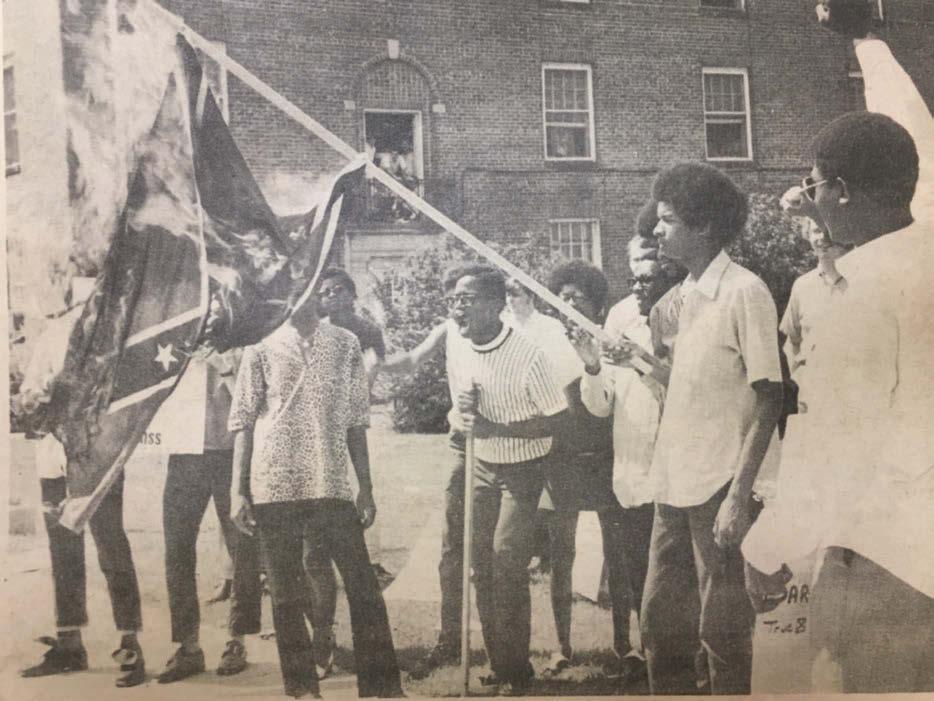
Stone: Talk about the students
supporting this work and the impact they will have.
Eubanks: Students will look at this with very fresh eyes and bring a different scholarly perspective. These student positions will help bring some innovation alongside with what I already know, because I’m always learning. And, it’s a great opportunity for students to learn more about the university and to be able to actively see how the work that they are doing can translate into a career such as an oral historian or a writer.
Stone: You were an undergraduate at the University of Mississippi four years after the arrests of the Ole Miss 89. As a student, were you aware of the incident?
Eubanks: Most Black students knew what happened in 1970, but no one actively talked about it. That is why this work is so important. It is how to get students to talk about an important and pivotal historical event and for it to become an active part of the memory of the university. I see this work as commencing the dialogue and filling in the silence. This is an important way
for us to own our history as a university community instead of running from it.
Stone: What does success from this work look like?
Eubanks: I think success is getting all the various stories documented and to have it as part of the conversation of the history of the university, not just among Black students, but among White students and among all alumni. Success looks like something that lives on. It is setting up a legacy.
Stone: How does this position help ensure the continuity and lasting impact of the recommendations of the task force?
Eubanks: It is a truth and reconciliation process. Reconciliation is an important and essential part of the aftermath of any nonviolent protest. There may be things that we learn while we’re collecting these histories that may inform the way some of the recommendations are implemented. They inform each other. The work of the fellowship goes hand in hand with the recommendations, and I see them very much working together.
The Southern Register Winter 2023 Page 17 “
The role of the fellowship is about illuminating the story and making sure that we get all the voices of the eighty-nine as part of this archive.
”
Protesting students burn a Confederate battle flag on University of Mississippi campus days prior to the February 24 protests.
From Coast to Coast
Lily-Pearl Benn Reports on Her Internship at the Walter Anderson Museum of Art
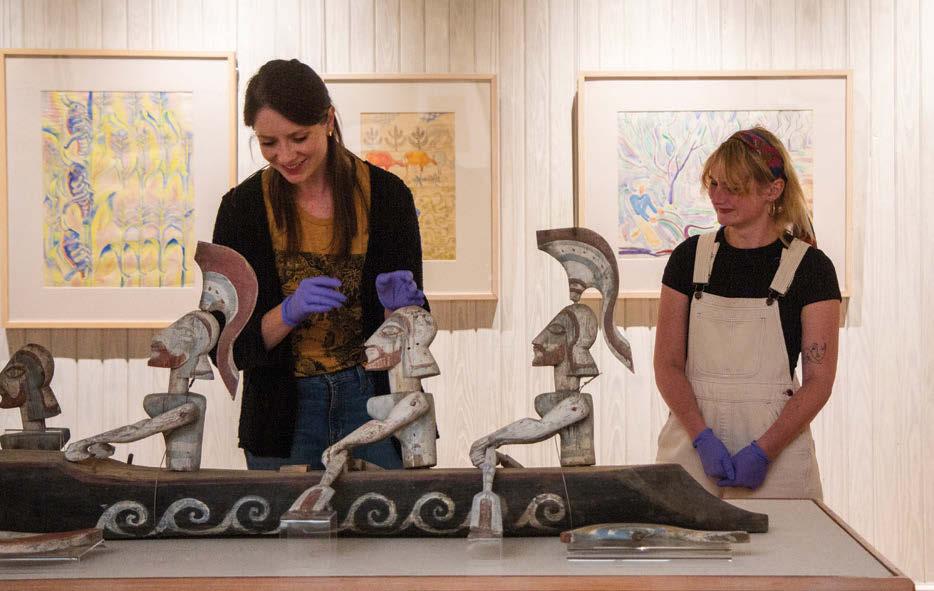
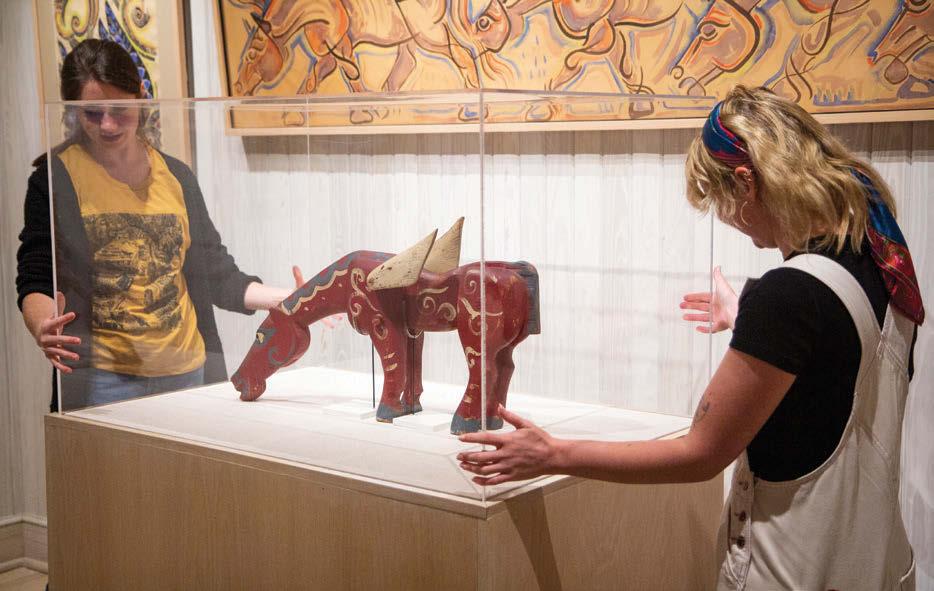
Lily-Pearl Benn graduated with an MA in Southern Studies in December 2022. From Hull, UK, she came to the University of Mississippi as the British Association of American Studies 2021 Graduate Assistant.
Born in New Orleans in 1903 to an artist and a grain merchant, Walter Inglis Anderson was a prolific artist. He worked in oil, pen and ink, pottery, wood, and linoleum, but he is perhaps most well-known for his vibrant watercolors of the flora and fauna of the Mississippi Gulf Coast.
The Walter Anderson Museum of Art (WAMA) was established in 1991 to house and preserve the Friends of Walter Anderson’s collection. The museum is adjacent to the Ocean Springs community center, where Anderson painted twenty-five hundred square feet of floor-to-ceiling murals in 1951. Approximately twenty-five thousand visitors from thirty-seven states and a dozen countries now visit the museum each year.
I discovered Walter Anderson through the Walter Anderson Museum of Art-Center for the Study of Southern Culture–partnered lecture series, “Southern Art/Wider World”— virtual programs themed around the connections between southern and American identity, as well as about the historical and cultural themes present in WAMA’s collection and the southern land. I could not travel from the UK to begin my MA in September 2020 due to the Covid-19 pandemic, so like many of us, I was keeping up with the Center virtually. The livestreamed talks made a huge impression on me. I was excited by Anderson’s
vivid depictions of the Gulf Coast—it was new to me because of the pelicans, possums, and palmettos, but the work also seemed connected to my own
home on the East Yorkshire coast. The talks also helped me understand the potential of the interdisciplinary nature of Southern Studies, as the
Page 18 Winter 2023 The Southern Register STUDENT PROFILE
Lily-Pearl Benn (right) and Mattie Codling install the exhibition Return to Oldfields in the Walter Anderson Museum of Art.
SARAH DUTTON
SARAH DUTTON
talks connected Anderson’s art with foodways, music, migration, and environmentalism.
Because of my late arrival, I took Southern Studies 602 before 601. I began exploring Walter Anderson’s work more closely when writing the required thesis proposal for the end-of-term paper. I was interested in exploring Anderson’s identity and his life experience, and the context in which he lived to understand the natural environment. I quickly found there was a huge amount of biographical information already available. I kept returning to WAMA’s website, talks, and publications, and then reached out to Mattie Codling, the museum’s curator, about the potential for an internship there. I admired the museum, particularly because of their online output and community outreach, and had become interested in museum work through a module I took in public history during my coursework.
My internship took place from August 22 to December 5, 2022. The interdisciplinary nature of Southern Studies prepared me to assist in all museum departments. With the curatorial department, I assisted in reinstalling two new exhibitions: Andrew Bucci: Landscapes of Patterns and Color, an exhibition that celebrates
Mississippian Andrew Bucci’s centennial and connects WAMA with museums across the state, and Return to Oldfields, which explores the artistic, ecological, and cultural significance of the Oldfields house in Gautier, Mississippi, where Anderson lived and worked through the 1940s. Here he produced his large-scale linoleum block prints, watercolors, and the daily “calendar drawings.” The Mississippi Heritage Trust is currently working with WAMA and other partners to restore the circa 1845 house, and I accompanied museum staff when they filmed a 360 virtual tour of the house so the general public can see inside. I also designed and conducted an oral history with Mary Anderson, the artist’s daughter, about her memories of the Oldfields house. This was a highlight of my internship. Mary is a wonderful storyteller, and the interview showed me how essential oral history can be in understanding sense of place—a floor plan or photograph could not tell us that Oldfields smelled like “old dust.”
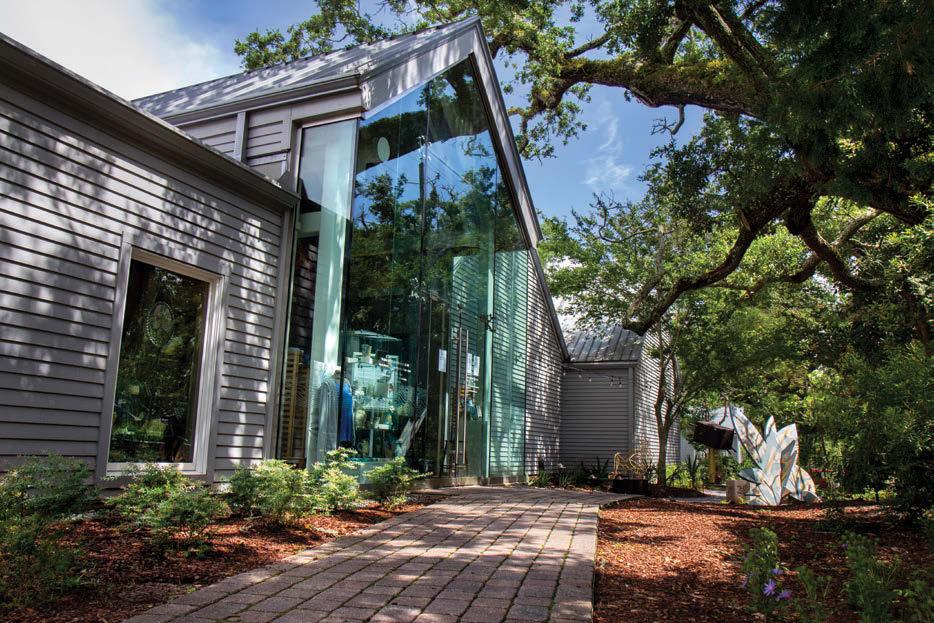
I also accompanied WAMA’s education department in their twicemonthly teaching at a local elementary school. Through October and November WAMA collaborated with printmaker Frank Estrada of Memphis, Tennessee, to assemble a
community ofrenda in the museum’s lobby decorated with the children’s crafts. (An ofrenda is an altar setting in which a family places an offering during the annual Día de los Muertos celebration, or Day of the Dead.)
As part of the Museum’s Bearing Witness project—a continuation of a 2021 exhibition—I helped process thirty-three oral histories about death, memory, and rebirth in nature and society as the nation moves toward recovery from Covid-19. The oral histories will be published in an upcoming book. Other duties I had included working at the front desk and during museum events, and digitizing documents. My internship was so varied, and no two days were the same. I was also lucky enough to attend WAMA’s twiceyearly trip to Horn Island.
Southern Studies was foundational to my internship. Walter Anderson is known as the “cultural patron saint of Mississippi and the Gulf South.” As Mattie Codling said, Anderson’s work is tied to the “identity” of the region. We in Southern Studies understand that the South is not a monolith but plural, constituted of a wide range of cultures, identities, and environments. Although Anderson’s work is intensely local, or might be called American Regionalism, his localism is especially recognized for its “intermingled, polyglot culture and communities,” as Dr. Ralph Eubanks has written. His work is also eclectic—he was influenced by Indigenous Americans, Egyptian hieroglyphics, French cave paintings, Chinese and Tibetan art, western European fairy tales, and Alfonso Best Maugard.
I am excited to continue at WAMA as a full-time generalist for the next year. I am extremely grateful to Mattie Codling and Julian Rankin, Ted Ownby, and Kathryn and Robert Wiener for their support that made this internship possible.
Lily-Pearl Benn
The Southern Register Winter 2023 Page 19
The Walter Anderson Museum of Art
Documenting Adventures
In the Field with Ben Cannon
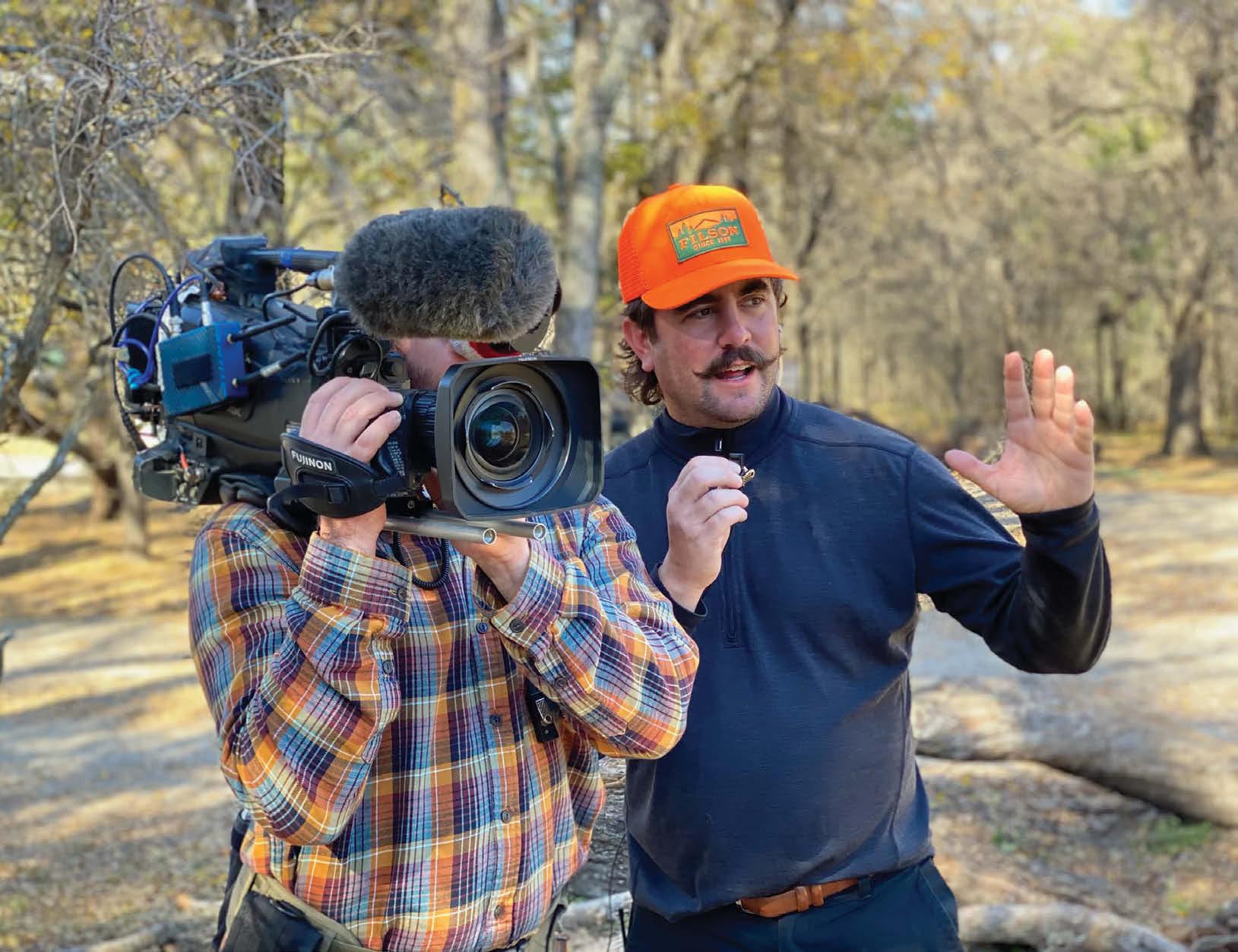
Ben Cannon’s enthusiasm comes across when you talk to him, even if he is having the conversation miles away on the outskirts of Fort Worth, Texas, while working on a Discovery Channel show. Cannon, who graduated from the University of Mississippi in the fall of 2003 with a BA in Southern Studies, enjoys exploring new places, which is quite helpful for his job as a field producer for the Discovery Channel. Although his circuitous route led him from ski towns in Germany, to lodges
in Wyoming, to city life in Brooklyn, his southern “routes” have come in handy no matter where he is in the world. “I’ve been filming Homestead Rescue for the Discovery Channel,” Cannon said. “Typically, my wheelhouse is the Discovery Channel or Nat Geo, so it’s more rugged types of shows, often with individuals or families trying to survive in a place like Alaska, for example.”
According to their website, Homestead Rescue is described as how the concept
of living a scaled-down, simpler, offthe-grid life has gained popularity recently, but it can be dangerous, especially for families who aren’t equipped with the necessary skills and live in isolated locations. Craftsman and survival expert Marty Raney—joined by daughter Misty, a farmer, and son Matt, a hunter and fisherman— attempt to teach these families the essential skills of how to survive and thrive in the wilderness.
At the conclusion of each episode,
Page 20 Winter 2023 The Southern Register ALUM PROFILE
COURTESY BEN CANNON
Ben Cannon (right) at work for the Discovery Channel
which takes place in locations such as Montana, Texas, Georgia, Tennessee, and Vermont, the new survivalists— who are learning how to hunt, fish, garden, and problem-solve—decide to either stay on the land or return to civilization. “The show is about people who are trying to live a more selfsufficient lifestyle because they had a dream. Or maybe their life in a larger town wasn’t working out for them, so they got a piece of land. Oftentimes, if people don’t have experience, things can go really awry—especially if you don’t have much in the way of money and resources,” Cannon said. “We identify people around the country who are trying to homestead and are struggling, and the Raneys go in and help them turn things around.”
Cannon said it’s the kind of show where the homesteaders will often turn emotional midway through because of the generosity of the Raney family. “I work on all kinds of different shows, and this one has, I think, a really kind of quality message. It’s very positive, so I am grateful to be working on it,” Cannon said.
In his role for the Discovery Channel as field producer, he is the first person who meets the homesteaders when he goes out and scouts the area, so he establishes a rapport with them and learns their background. “I figure out how the Raneys and the show can address what’s going on,” Cannon said. “Then I go back to my home office and I write the creative, which is sort of an outline based on what I predict the families need, and help come up with fun little twists and turns along the way.”
One of his tricks, which he learned as a newspaper reporter in Wyoming, is to call the town or county office and ask who might have background
knowledge about places to go. “Townspeople can often connect you with the expert you are looking for,” said Cannon, who was born in Meridian, Mississippi, and grew up in Monroe, Louisiana. “I’ve even done that before while we are driving somewhere: ‘Okay, in three hours we will be in this town in Georgia. Where should we eat?’ So I’ll call the sheriff’s office, and they tell us about the local barbecue place. It’s a great way to reach out for whatever you might be looking for—especially in the South.”
Teaching students a wide variety of skills through different disciplines is a big part of the Southern Studies ethos, which Cannon enjoyed. Recently, he made it back to Oxford for a long-overdue visit. “I’m very grateful to Southern Studies. It was so special to go back and visit Barnard Observatory,” Cannon said. “When I was in Ted Ownby’s History of Mississippi course, I began to learn a little bit about the Southern Studies program, and I just immediately got into it. Suddenly I went from being a rudderless general studies major to someone who had found this really interesting, nurturing department where I had mostly small classroom experiences. I walked into Barnard and I knew everyone, and they knew me, and it really kept me engaged.”
Although Cannon wasn’t sure at first what he would do with his Southern Studies degree, he realized after moving to Aspen he would need to find a profession. He became a newspaper reporter in Wyoming, and later moved to New York and fell into documentary filmmaking. “There were so many seeds that were planted in the Southern Studies program that are tools in my skillset now—not least of
all my interest in documentary work,” Cannon said.
“I think there’s some degree of adventure in earning a Southern Studies degree, with the freedom to take lots of different classes,” Ownby said. “Talking to Ben a few weeks ago, I realized his adventures continued in the various things he’s chosen to do since he graduated.”
While an undergraduate, Cannon took a class taught by Charles Reagan Wilson, with only five or six students in the class. One day, Wilson showed Sherman’s March: A Meditation on the Possibility of Romantic Love in the South during an Era of Nuclear Weapons Proliferation, a 1986 documentary about a young man’s pursuit of love as he loosely follows the path of Sherman. “I can’t tell you how much I loved watching this film,” Cannon said. “It was the first time I saw a documentary that really grabbed me, and I would say that’s where I first began to love documentaries. That hasn’t ended, and I never would have imagined working for Discovery. We are often filming in the South but also places like Alaska, and I feel very comfortable doing the work and interviewing, researching, doing critical and creative thinking, and all the things entailed in documentary work.”
In addition to Ownby and Wilson, Cannon learned from David Wharton, former director of documentary studies. “I would be very remiss not to thank the late, great David Wharton, who taught me how to think about taking a picture and storytelling,” Cannon said. It seems fitting that Wharton’s legacy continues through his students, such as Cannon, who are now in the field doing documentary work.
The Southern Register Winter 2023 Page 21 SOUTHERN FOODWAYS ALLIANCE
Rebecca Lauck Cleary
“When I was in Ted Ownby’s History of Mississippi course, I began to learn a little bit about the Southern Studies program, and I just immediately got into it. Suddenly I went from being a rudderless general studies major to someone who had found this really interesting, nurturing department where I had mostly small classroom experiences.”
Natural Storyteller Finds Perfect Fit Sarah Rodriguez Joins SFA as Oral Historian
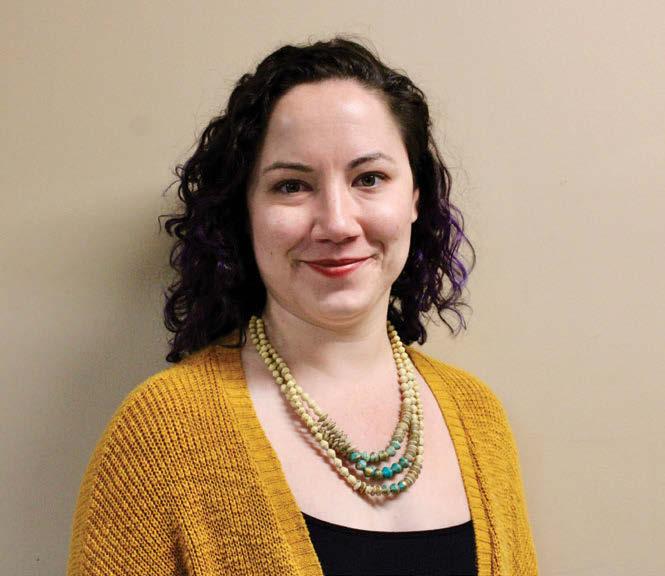
In October, Sarah Rodriguez joined the Southern Foodways Alliance team as their new oral historian. Rodriguez grew up in Natchez, Mississippi, before spending time in Virginia and Georgia. She earned her MA in history, with an emphasis on public history, from the University of West Georgia and a BA in history with a minor in economics from William & Mary. She learned how to do oral history work at the William & Mary LGBTIQ Research Project, the University of West Georgia’s Center for Public History, and the Breman Jewish Heritage Museum in Atlanta. Before joining SFA’s team, Rodriguez worked at the front desks of museums, facilitated simulated archeological digs for kids, freelanced as a transcriptionist, created online walking tours, and led neighborhood food tours in Richmond, Virginia.
“I started undergrad briefly thinking I would go into pre-med, and I took a biology class at the same time I took a history class, and quickly decided I didn’t want to take any more biology classes,” Rodriguez said. “I started doing oral history work in 2016, and I realized, Oh, I like this, and I’m good at it. I even like the more tedious parts of it—the transcribing and processing.”
Oral history work is how Rodriguez engages with people and storytelling. In a stroke of luck, the SFA position opened as she was preparing to finish graduate school. “I engaged with SFA and their work in grad school, and I realized I really liked foodways, even though my past oral history work was with gender and sexuality,” she said. “As I got more into foodways research I realized food is an interesting avenue to really difficult truth-telling because, for some reason, people seem more willing to engage in hard conversations if it starts from a place of food, so I’m curious to keep exploring that in my work. I think people are more willing to listen and be curious around food, and I’ve spent time talking with other
professionals in foodways work about why that is, but we haven’t quite figured it out yet.”
Since SFA works best when they work collaboratively, having her new ideas as part of the planning meetings will be valuable as they set the program for 2023. For the past few months, Rodriguez has largely worked on digital files with Mary Beth Lasseter, interim codirector of the SFA. “Right now, we are wrapping up some projects, including one on a Louisiana-based king cake baking tradition and some kosher barbecue work,” Rodriguez said.
Lasseter said it has been a pleasure working with Rodriguez. “Sarah has experience not only in collecting oral histories, but also managing other oral historians and archiving interviews,” Lasseter said. “Her skill set matches the needs of SFA’s oral history program, which routinely works with oral historians in the field and has begun building an academic archive for our documentary work. As SFA’s lead oral historian, Sarah will have the freedom to select projects and themes she wants to explore. She’ll shape the future of our oral history program, and I look forward to seeing her invite new voices and perspectives to SFA work.”
Rodriguez missed the SFA’s fall symposium in Oxford because she had already registered to attend the Oral History Association Conference in Los Angeles, whose theme was Oral History As/And Education: Teaching and Learning in the Classroom and Beyond. She said it was a very open event, one where people talked vulnerably about
Page 22 Winter 2023 The Southern Register SOUTHERN FOODWAYS ALLIANCE NEWS
“I think people are more willing to listen and be curious around food, and I’ve spent time talking with other professionals in foodways work about why that is, but we haven’t quite figured it out yet.”
Sarah Rodriguez
their work. “I think oral history is a field that is conducive to those types of conversations, so it made sense that the practitioners embody that openness as well,” Rodriguez said. “There were multiple sessions where the presenters were not afraid to start crying, and it fit into the context of what we were talking about. We specifically addressed the idea of if you are interviewing someone who is telling you a really traumatic story and they start getting emotional, what happens when you start getting emotional as well and not being afraid of that dynamic popping up? It’s about figuring out how to navigate when you, the interviewer, start to get emotional. In some ways, that is part of really difficult truth-telling, and it comes with the territory.”
In the midst of using all of these skills, Rodriguez is rediscovering how to have hobbies, since she was busy in graduate school during the lockdown of Covid. “I’m just figuring out how to live in a post-Covid and post-grad school world, and I’m trying to figure out how to live my life with a very different set of circumstances,” she said. One thing helping her navigate is her boxer-basset hound dog named Lou, who is tan, white, and black with floppy ears. “He gets me out of the house and gets me moving,” she said. “I also like to travel and take road trips.” This past summer she was on the road for a month, traversing New England and Canada. “I like to meet people for drinks and a meal and to chat, so oral history is a good field for me to get into,” she said. “And because I work for SFA, it feels right to share my favorite meal, which is grillades and grits. I really like how my mom makes it with venison or beef, but I’ve also had it with pork, and I like it a lot, I don’t make it myself because she does such a good job. I never got that in Virginia or Georgia, so it’s fun to eat when I go home.”
Rebecca Lauck Cleary
SouthDocs ProducerDirector Receives Accolades
Melanie Ho Earns Two Fellowships
Melanie Ho has had a busy year. First, NeXtDoc named her one of their fellows. More recently, the Gotham Film and Media Institute and HBO Documentary Films announced Ho as a member of their inaugural cohort and for their Documentary Development Initiative.
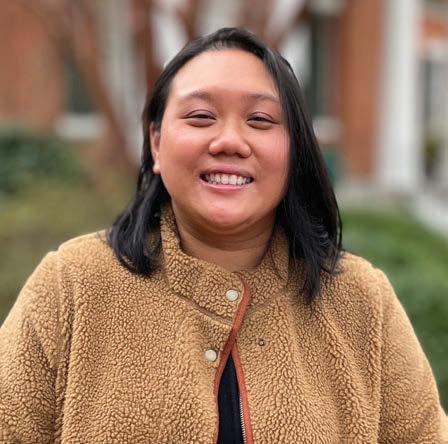
The NeXtDoc Fellowship is a yearlong national fellowship that brings together emerging nonfiction storytellers ages twenty-one to twenty-five from diverse backgrounds with award-winning filmmakers to learn, share, and build their skills. “NeXtDoc builds a community for documentary filmmakers to learn and grow together while sharing resources for us to challenge current institutions of documentary work,” said Ho, producer-director at SouthDocs and adjunct assistant professor. “It started with a one-week Vermont retreat and will continue with monthly meetings focusing on masterclasses on all aspects of filmmaking.”
The retreat, held in September, helped Ho grow both as a person and as a creative. Not only was the week an opportunity to rest, it was also a way to talk about how to create an ecosystem for documentary work rather than an industry. “To me, it was a space of support and intentionality, carefully created by Darian Henry and Bhawin Suchak,” Ho said. “I was really excited that Zac Manuel and Cai Thomas shared their work, which encourages me to continue seeking collaboration. Kameelah Mu’Min Rashad made all of us emotional, as we did very personal and reflective activities related to filmmaking and ourselves as creatives. She also talked to us about the framework that the Documentary Accountability Working Group created.”
Ho is one of ten NeXtDoc Fellows and says she already knew one of them, Nash Consing, from when they were both inaugural fellows of the Center for Asian American Media’s The Sauce fellowship, and she appreciated spending time with an important friend. “One of my favorite parts was just getting to know the fellows, hearing their stories, and being in solidarity with them—feeling heard and seen and finding connection in our experiences,” Ho said.
The Documentary Development Initiative was designed to bolster storytellers who identify as BIPOC, LGBTQ+, or storytellers with disabilities, by providing them with the resources necessary to develop thought-provoking, character-driven, contemporary ideas for documentary films and limited series. In addition to oneon-one mentoring, each of the selected filmmakers will be given a $50,000 grant sponsored by HBO Documentary Films, OneFifty, and Warner Bros. Discovery Access for research and creative development on new documentary projects, and select grantees will be presented with the opportunity to receive additional funding.
Ho is a Vietnamese American filmmaker and writer from Florida who has worked with SouthDocs since 2021.
The Southern Register Winter 2023 Page 23 SOUTHDOCS NEWS
Rebecca Lauck Cleary
Melanie Ho JAMES G. THOMAS, JR.
New Southern Studies Course Offerings
Here are the new Southern Studies classes offered this spring. As usual, they focus on a wide variety of topics—on everything from anthropological films to southern mythologies to music.
SST 103: Southern Mythologies and Pop Culture
Instructor: Ted Ownby
This course will explore multiple mythic visions of the American South, using popular writing, advertising, music, film, television, and online sources to identify stereotypes and mythologies and to analyze who constructed those images, how they circulated, and how they have been subjects of identity and controversy. The class will study mythologies about the South in both the past and the present.
SST 105: The South and Food
Instructor: Catarina Passidomo
SST 105 will explore southern culture, history, identity, and placemaking through the lens of foodways—that is, what people eat, how and where and with whom they eat, and what all of that means. Because the study of foodways is highly interdisciplinary, students will read and consider works spanning several disciplines and methodological approaches. In addition to weekly reading, students will listen to podcasts, read and listen to oral histories, and watch films.
SST 108: Music and Southern Society
Instructor: Darren Grem
Music has been an essential aspect of southern culture and society for as long as folks have deemed themselves “southerners” or believed there is a “South.” This course takes students on a tour of southern places and spaces via music. Each day in class, they are piling onto an intellectual tour bus of sorts and “hitting the road” like musicians on tour. It starts in the Mississippi Delta, then heads west to Texas, going back east to New Orleans before rolling over to Macon, Georgia, then South Florida, up through Georgia and the Carolinas, and into southern Appalachia. The last leg of the journey goes back down to Atlanta and to the “country-soul” triangle of Nashville-Muscle Shoals-Memphis before ending up back home in Oxford.
SST 109: Rights and Southern Activism
Instructor: Ralph Eubanks
Rights and Southern Activism examines the South, past and present, through the lens of activism, whether for civil rights or human rights. The history of protest at the University of Mississippi will be a central part of this class, yet connections between the university’s history of protest and other southern movements–such as the Southern Tenant Farmers Union and the civil rights movement more broadly–will also be explored. Given the connection between race and protest in the South, a
foundational text for this course will be C. Vann Woodward’s The Strange Career of Jim Crow. This class will not only explore activism, but also the connections among activists, the strategies they used, and the opposition they faced.
SST 535: Anthropological Films
Instructor: Simone Delerme
This course introduces students to visual anthropology, a subfield that documents and analyzes social interactions, human behavior, and cultural life through audiovisual arts and media production. The course is broken up into units— from globalization and migration to gender and sexuality— that will evoke a series of critical questions to examine the production, dissemination, and interpretation of visual representations. Throughout the course, students will compare films about the US South to documentaries about other parts of the world.
SST 560: Oral History of Southern Social Movements
Instructor: Ryan Parsons
This course provides practical experience in planning and executing oral history projects with a particular emphasis on civil rights movements in Mississippi. Over the course of the semester, students will collect oral histories and contribute visual materials (photography, film) that complement these oral histories. For the spring 2023 semester, there will be a partnership with the Emmett Till Interpretive Center in Tallahatchie County to design and execute an oral history of the aftermath of the Emmett Till lynching and subsequent trials. The course is designed with community engagement principles in mind and will work with community partners to identify topics of interest. There will also be opportunities for students to pursue their own lines of inquiry for use in thesis or other independent projects.
SST 598: Multimedia Ideation in the South Instructor: Zaire Love
It was a significant moment for the South when Master P (founder of No Limit Records) released the song “Make Em Say Ugh” in 1998. Master P, No Limit Records, and his No Limit Soldiers displayed brilliant branding and marketing vision, with military-inspired lingo, fashion, and the iconic tank logo, and this course starts by recognizing the American South as a place of dynamic and imaginative production. Drawing on various technical approaches in new media, the course will equip students to produce their own personal brand, podcast episode, short film, and marketing campaign. Structured as a production company, the course asks students to be “producers” who will learn to ideate, document, and brand powerful stories about the South and themselves through the development of design, thinking, multimedia, branding, and marketing.
Page 24 Winter 2023 The Southern Register CENTER NEWS
Seeking a More Just and Equitable Future Zaire Love Honors and Amplifies Voices of the Black South

Making Our Way, a documentary film by Zaire Love, a producer and director of film for the Southern Foodways Alliance, made its world premiere on top of a mountain in Tennessee. The premiere of the film on the University of the South (Sewanee) campus last September was a component of the Roberson Project on Slavery, Race, and Reconciliation.
The Roberson Project on Slavery, Race, and Reconciliation at Sewanee is a six-year initiative investigating the university’s historical entanglements with slavery and slavery’s legacies. The name memorializes the late Houston Bryan Roberson, who was the first tenured African American faculty member at Sewanee and the first to make African American history and culture the focus of teaching and scholarship. The Roberson Project seeks to honor his inspiring legacies: the devotion to rigorous teaching, the pursuit of scholarship, the dedication to social justice, and the personal example of high moral character. In doing so, the Roberson Project seeks to help Sewanee confront its history in order to achieve a more just and equitable future for a broad and diverse community.
Woody Register—who teaches post–Civil War US history and serves as director of the Roberson Project on Slavery, Race, and Reconciliation at Sewanee—contacted Love about making a film because he thought she would be the perfect filmmaker to work with them. Love’s mission to honor, amplify, and archive the stories and voices of the Black South seemed to align with the intent of the documentary that became Making Our Way .
“The film tackles the University of the South’s relationship with slavery and oppression at its founding and how this dark truth still leaves shadows on the campus
today,” said Love. “It is told through the lens of Black students on campus, including Michaela James-Thrower and Klarke Stricklen—students from Phi Sigma Theta sorority and Gamma Sigma Phi fraternity. Elders from the Black Sewanee community were also vital in creating a documentary that showed the nuanced dark past and the hope and the pride that Black folks there have about a place they call home,” Love said. “The Roberson Project was looking to do just that with their film project. As I began the filmmaking process, I grew so fond of the folks at the Roberson Project and the students that this film really became way more than I could have ever imagined.”
In the documentary, former vice chancellor Reuben E. Brigety II imparted some words of hope and expectation for Sewanee: “I believe that the University of the South is providentially positioned to play a vital role in that intergenerational effort to bring forth the new South.” Brigety is an academic and American diplomat who
has served as the United States ambassador to South Africa since 2022. He was the vice chancellor and president of the University of the South from 2020 to 2021.
“So many folks had come out to see it and to see me in conversation with Dr. Woody Register,” Love said. “Black Sewanee residents who had moved off the mountain—students, faculty, etc.—were there with wide eyes and open hearts. It was truly the catalyst for conversation about race, reconciliation, and renewal on campus. When I accepted the project, I had no idea we were making a film that would be so monumental and meaningful to that community and campus.”
The audience truly enjoyed the film, Love said. “White students and faculty got a peek into the world of Black and multicultural students on campus, and the Black and multicultural students were able to see themselves on film, which was new but necessary,” she said.
The Southern Register Winter 2023 Page 25 SOUTHERN FOODWAYS ALLIANCESOUTHERN FOODWAYS ALLIANCE NEWS
Rebecca Lauck Cleary
Zaire Love
SFA Presents Award Winners
Fresh Air Barbecue Wins Ruth Fertel Keeper of the Flame Award
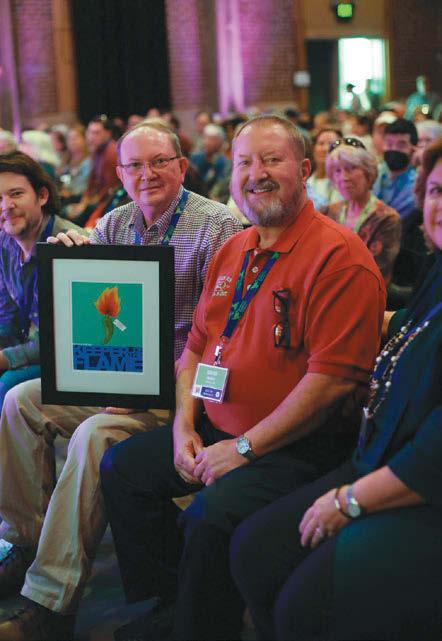
Fresh Air Barbecue in Jackson, Georgia, is the oldest pit-cooked barbecue restaurant in Georgia still in its original location.
Joel Watkins, a veterinarian, opened Fresh Air in 1929, serving rabbits and goats that he raised and barbecued on the weekends. George “Toots” Caston, a fifth-generation native of Jackson, introduced pork when he bought the place in 1952. Caston refined the cooking process, optimizing for indirect heat, and perfected his father’s recipe for Brunswick stew. He developed the tangy tomato and vinegar sauce that would make Fresh Air a favorite stopping point for travelers on their way to Atlanta or Florida. In 1984 Fresh Air was voted Best Barbecue in Georgia in a statewide poll.
After more than forty years in the barbecue business, George passed away in 1996 at the age of eighty-nine. Today, four generations of the Caston family
have been involved with Fresh Air, and many dedicated employees have worked in the business for decades. The restaurant prides itself on quality products,
consistent recipes, and a short, simple menu—one of the few additions over the past eighty years was cole slaw, which is made in house. In 1989 the family opened a second location in Macon, Georgia, but loyal customers and barbecue lovers still make the pilgrimage to the original Fresh Air in Jackson.
Each fall since 2000, the SFA, with support from the Fertel Foundation, has honored a relatively unsung hero or heroine, a foodways tradition bearer of note, with the Ruth Fertel Keeper of the Flame Award. We pay homage to their life and work through a documentary film, directed by Joe York. This year, that film, Fresh Air Barbecue, debuted live on October 21, during the TwentyFifth Southern Foodways Alliance Fall Symposium in Oxford. Celebrating these Keepers of the Flame, we also pay homage to the late Ruth Fertel, the beloved and respected New Orleans restaurateur and entrepreneur. k
Imani Black Wins John Egerton Prize
Imani Black is working to nurture a more diverse and inclusive aquaculture industry, ensuring that people of color are included in conversations around aquaculture and honoring the historic contributions of African Americans on the Chesapeake Bay.
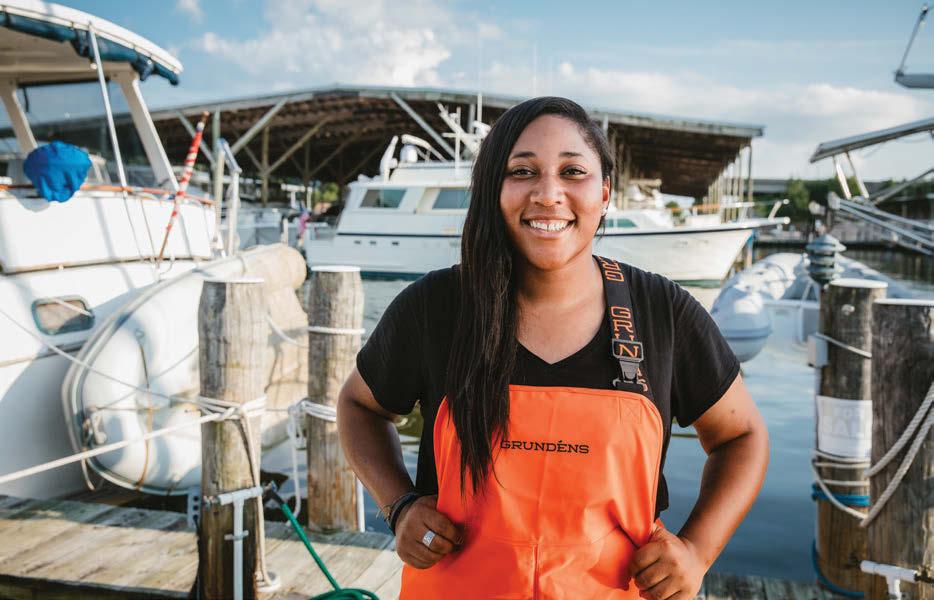
Black is an African American oyster farmer and faculty research assistant at the University of Maryland’s Horn Point Laboratory. Born and raised on the Eastern Shore of Maryland, she comes from a family of watermen that dates back more than two centuries. During college at Old Dominion University, she interned for the Chesapeake Bay Foundation, beginning her work in oyster restoration and shellfish aquaculture. For more than two years, she was a lead technician at the first privately owned hatchery
in Maryland. Today, she is a graduate research assistant at the University of Maryland’s Horn Point Laboratory.
In 2020 Black founded the nonprofit organization Minorities in Aquaculture (MIA), which aims to educate minority
Page 26 Winter 2023 The Southern Register SOUTHERN FOODWAYS ALLIANCE NEWS
Fresh Air Barbecue
JAI
WILLIAMS
Imani Black
CAROLINE J. PHILLIPS
at the 2022 Fall Symposium
Helen Turner Wins Lifetime Achievement Award
In a historically male-dominated business, Helen Turner has owned her own barbecue restaurant for twenty-six years. “I had people come in, men pretty much, and say, ‘Can’t no woman do this job,’” she told USA Today in 2021. “But I done proved everybody wrong.”
Turner is owner and pitmaster of Helen’s Bar-B-Q in Brownsville, Tennessee. While her husband, Reginald, lights the fire in the mornings, Turner does nearly everything else on her own: tending the meat, preparing sandwiches, cooking sides from scratch, and making sure regulars are taken care of.
Turner was born and raised in Brownsville as the oldest of ten children. As a mother of two, she worked part-time serving customers for Linda and Curly Spellings, the previous owner of the space that is now Helen’s Bar-B-Q. When Linda Spellings sold the business to Dewitt Foster, he called Turner to ask her to come make the barbecue sauce. They became business partners, and when Foster retired, Turner took over. In 1996 Helen’s Bar-B-Q was born. To this day only Turner knows the ingredients in her famous sauce.
Over the decades, Helen’s Bar-B-Q has earned accolades from local and national publications for Turner’s ribs and slow-smoked pork shoulder. In
women about the environmental benefits provided by local and global aquaculture in order to promote a more diverse, inclusive aquaculture industry. MIA offers live and virtual workshops, training, and academic and professional mentoring, in addition to a paid internship initiative to provide opportunities free of financial barriers. The organization also offers minigrants to women of color who are beginning their careers in aquaculture.
2012 the Southern Foodways Alliance honored her with the Ruth Fertel Keeper of the Flame award. One year later, SFA crowned her the first-ever queen of barbecue.
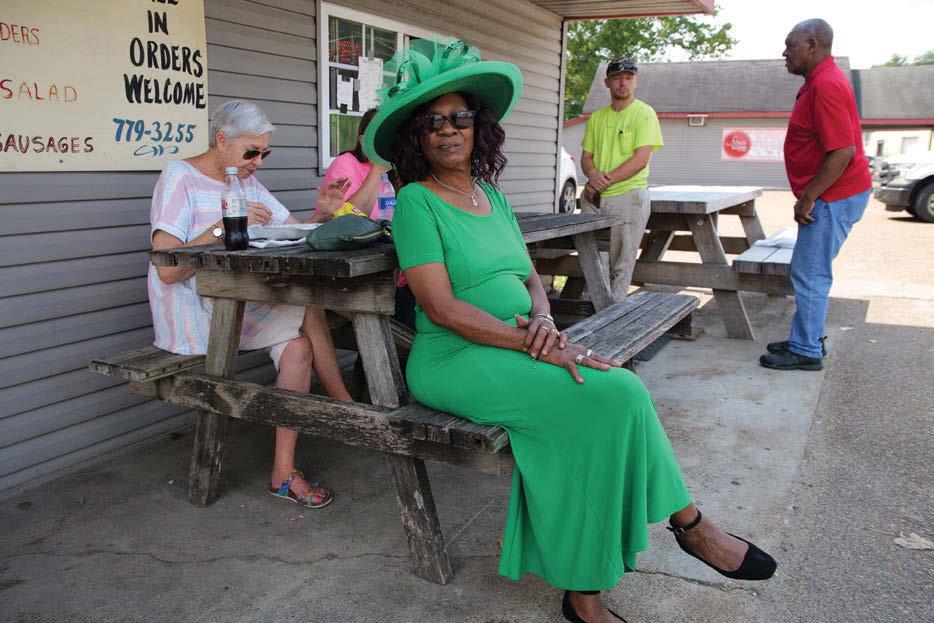
Each year since 1999—when SFA first honored Edna Lewis—the SFA presents the Lifetime Achievement Award to an individual whom all thinking eaters should know, the sort of person who has made an indelible mark upon our cuisine and culture, who has set regional standards and catalyzed national dialogues.
The John Egerton Prize, endowed by SFA member contributions, awards $5,000 each year. To share the story of the Egerton Prize winner, SFA also produces a film. The 2022 film, Imani Black: Minorities in Aquaculture, directed by Caroline J. Phillips, premiered on October 15, via a partnership with the Southern Festival of Books in Nashville.
To mark the many ways that Egerton’s work engaged the South, that
In recognition of that life of work, SFA commissions a portrait by Oxford, Mississippi, artist Blair Hobbs and produces a film to share the story of the honoree. The 2022 film Helen: The Legend, directed by SFA Pihakis Foodways Filmmaker Zaire Love, premiered at the Southern Foodways Symposium on October 22. A Maker’s Mark toast to Turner’s life and legacy followed the premiere, which featured cocktails and mocktails from Edward Crouse of Babas in Charleston, South Carolina. k
film premiere and award ceremony featured Black in conversation with author Silas House, author of Lark Ascending and Southernmost, and SFA managing editor Sara Camp Milam. John Egerton Prize winners live or work in the American South, exhibit exceptional creativity, apply the rubric of food and drink to their work, and show the potential to make a genuine difference in one or more fields. Winners are elected by a jury. k
The Southern Register Winter 2023 Page 27 SOUTHERN FOODWAYS ALLIANCE
ZAIRE
Helen Turner
LOVE
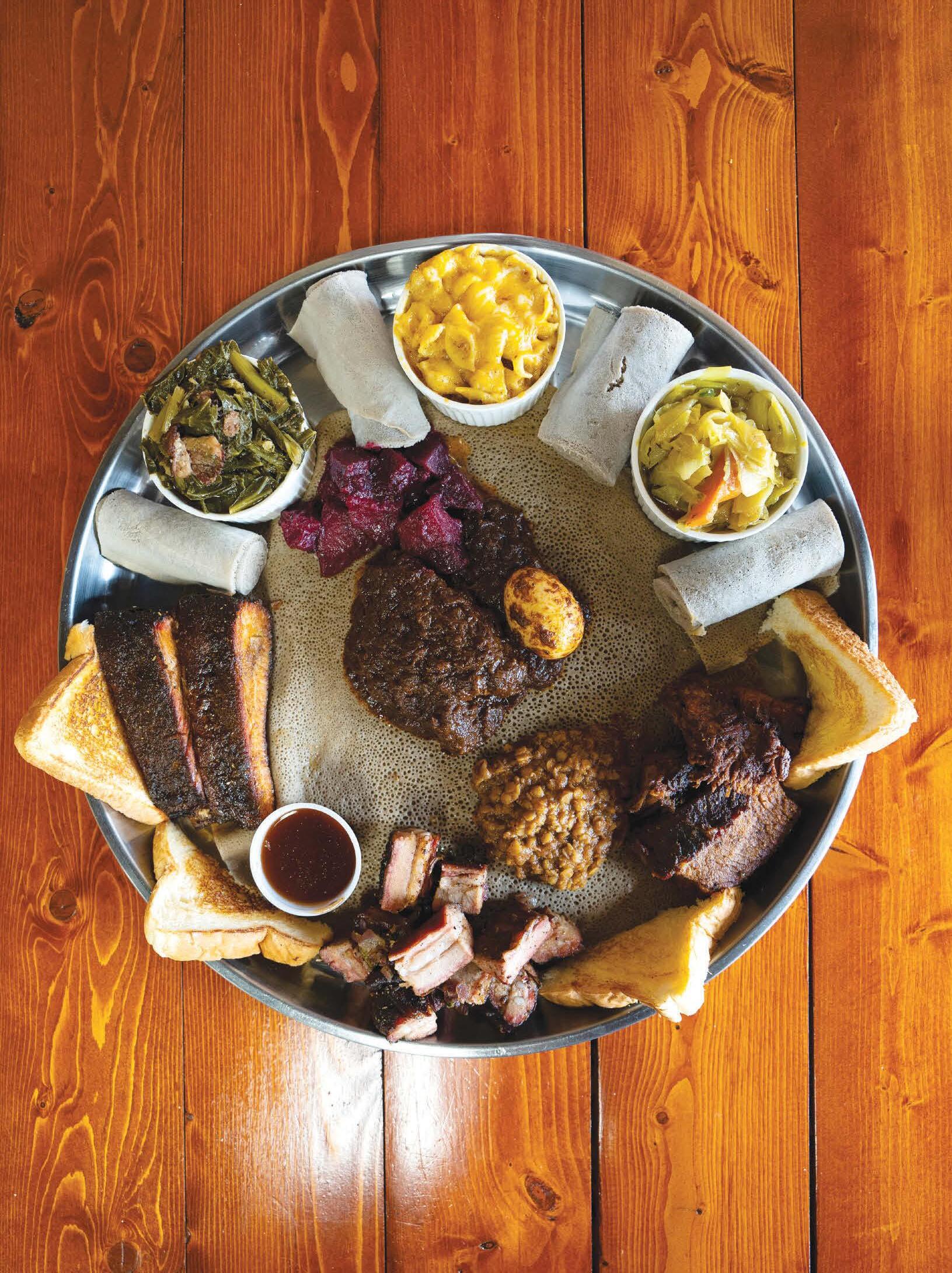
Page 28 Winter 2023 The Southern Register NITASHIA JOHNSON
When Brisket Met Injera
When Brisket Met Injera
Smoke’N Ash in Arlington Offers Texas Barbecue with a Taste of Ethiopia
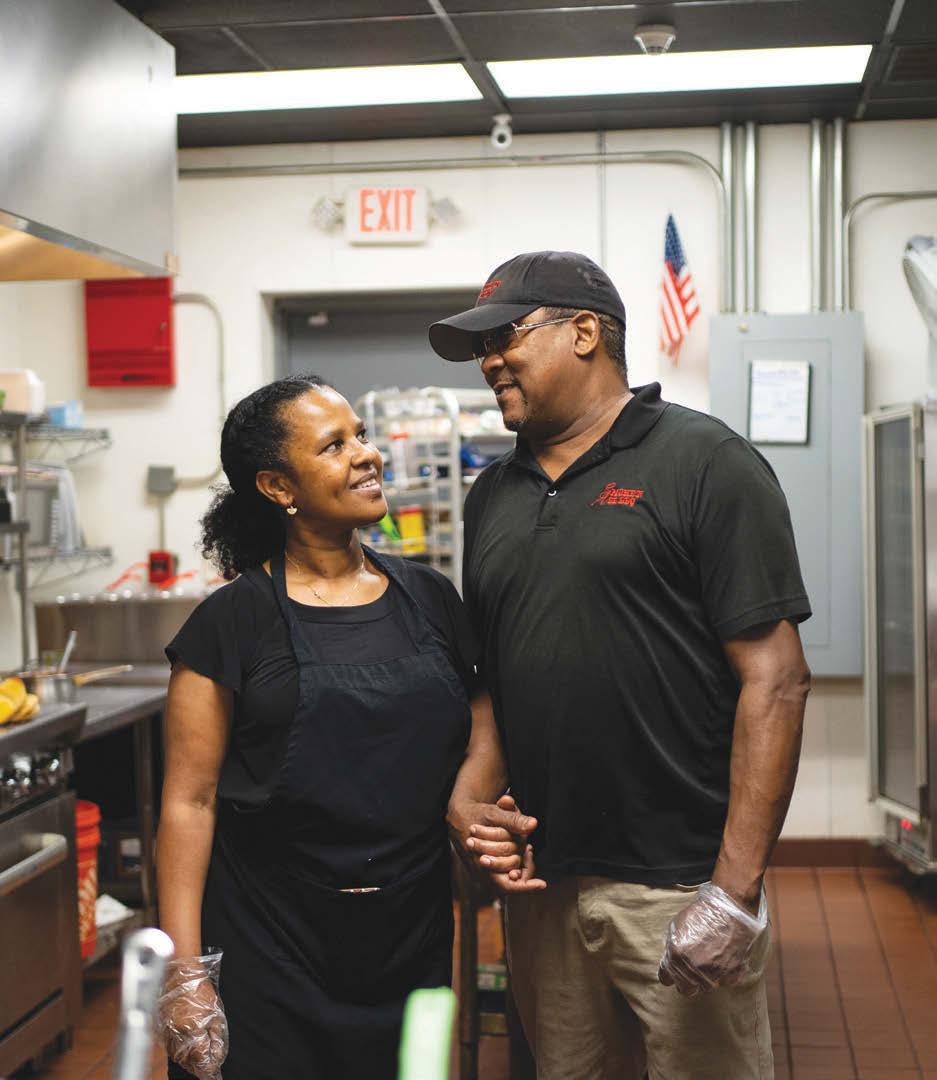 By Hanna Raskin
Photos by Nitashia Johnson
By Hanna Raskin
Photos by Nitashia Johnson
To a Texas-born eater accustomed to barbecue served with a few slices of industrial white bread for sopping up beef fat, the spongy rolls of injera sidled up to Smoke’N Ash BBQ’s berbererubbed brisket might seem odd. But any halfway decent student of southern smoked meats would survey the Ethiopian flatbread, stewed lentils, and pork rib tibs that Patrick and Fasicka Hicks array on circular metal trays at their strip-mall restaurant in Arlington, Texas, and pronounce the spread traditional. And with that conclusion out of the way, the scholar might order a cup of homemade ginger tea and teff sheet cake with spiced pecans for dessert.
As barbecue devotees over the last decade have sought out idiosyncratic riffs on barbecue standards, more and more pitmasters have borrowed techniques and ingredients from their families’ kitchen canons. In 2017, Washington Post barbecue columnist
The Southern Register Winter 2023 Page 29 SOUTHERN FOODWAYS ALLIANCE FROM THE PAGES OF GRAVY
NITASHIA JOHNSON
Jim Shahin chronicled several of the nation’s birthright barbecue standouts, including Atlanta’s Heirloom Market BBQ, home of gochujang pork and kimchi slaw, and Austin’s Valentina’s Tex Mex BBQ, where the brisket comes with corn tortillas, guacamole, and salsa.
In Shahin’s telling, “Southern barbecue is being transformed by the immigrants of contemporary America,” who are either keen to put their stamp on the genre or reassert their citizenship by excelling at what Robin Wong of Houston’s Blood Bros. BBQ described as “straight Texas barbecue.” That’s absolutely correct. But at Smoke’N Ash, the Hickses have something even bigger in mind.
Like the German immigrants in South Carolina who centuries ago sized up pork barbecue and decided it would benefit from a dollop of mustard sauce, or the Czech immigrants in early twentieth-century Texas who correctly guessed their butcher shop customers would enjoy garlicky pork sausage, the Hickses believe they’ve spotted an opportunity to improve upon how barbecue is practiced today.
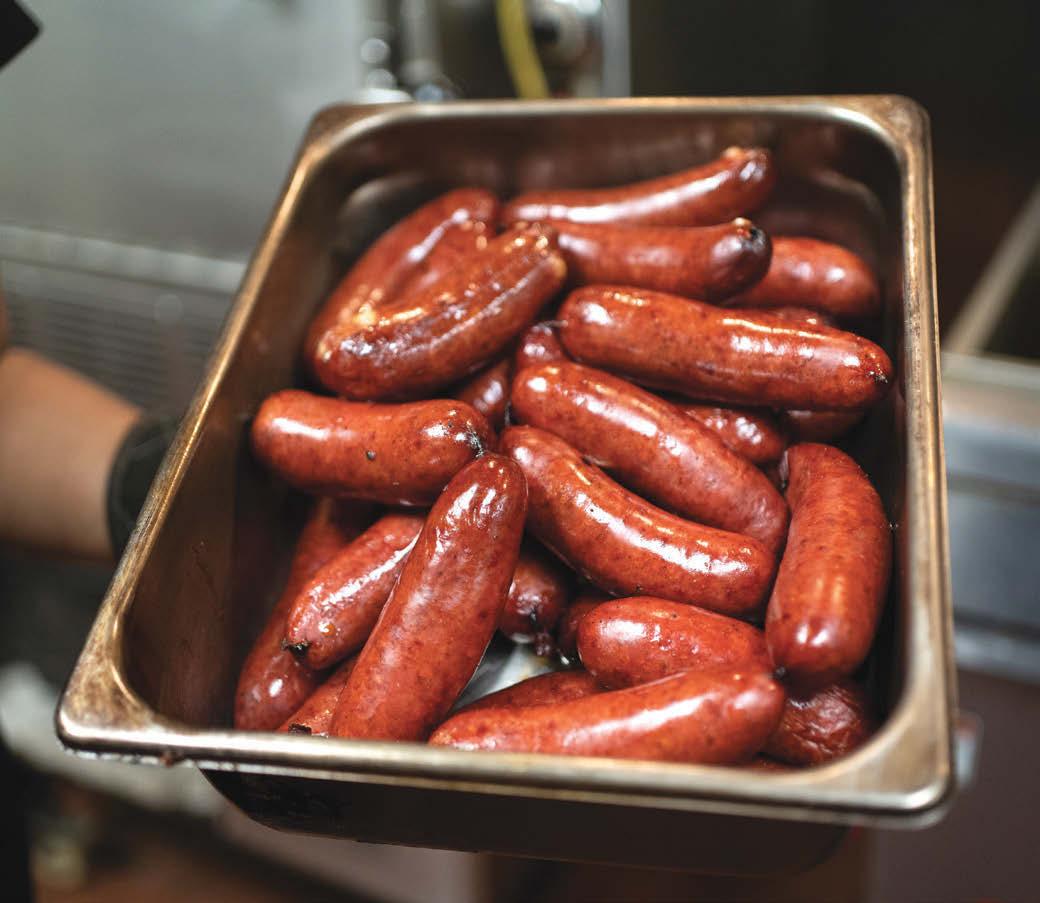
“A lot of people . . . want vegan, they want gluten-free,” says Patrick Hicks, who grew up in Waco, Texas, on a style of barbecue that wouldn’t qualify as either. His wife Fasicka, a native of Addis Ababa, Ethiopia, has a fix for that in the form of carrots, cabbage, and okra fries. “What’s appealing is the
vegetable side of it,” she says, adding that it’s not uncommon for omnivorous Smoke’N Ash customers to ask for brisket with a vegan combo on the side.
Thus far, this column [“The Smoking Section”] has examined the fame and financial profit that barbecue can yield, at least for its luckiest and hardest-working interpreters. Another outcome of the very best barbecue, though, is legacy: foresighted pitmasters have the capacity to shape cuisine, in part because even radical-seeming barbecue innovations are generally comprehensible and replicable. Setting out a bottle of sauce with brisket, for example, once constituted sacrilege in Texas—but it sure was an easy upgrade to steal after John Lewis and Evan LeRoy helped normalize it.
Are barbecue joints across the country on the brink of jettisoning their cheap white bread and replacing it with injera fermented in house? My professional opinion is “not a chance.” But could restaurants elsewhere ditch their meaty baked beans for lentils stewed with plenty of organic spices and no animal products? That seemed plausible enough for me to book a trip to Dallas, which is something I’d wanted to do since reading Daniel Vaughn’s December 2021 writeup of Smoke’N Ash in Texas Monthly. After all, news value aside, buttery doro wot, a traditional slowcooked stew, made with hickory-smoked chicken sounds exceedingly delicious.
That’s what the Hickses’ regular customers kept telling the couple in 2018, when they upgraded from their six-year-old barbecue trailer to a standalone store. Back then, there weren’t any Ethiopian references on their menu. “To tell you the truth, I didn’t know anything about the fusion idea,” Fasicka Hicks says. Still, friendly patrons were
Page 30 Winter 2023 The Southern Register
“Foresighted pitmasters have the capacity to shape cuisine, in part because even radicalseeming barbecue innovations are generally comprehensible and replicable.”
NITASHIA JOHNSON
curious about her home cooking and wondered how East African sauces might taste on their baked potatoes.
While fusion was new to Hicks, she was well acquainted with the idea of keeping guests happy. When she moved to Arlington from Addis Ababa in 1996 to study information technology, she took a part-time job at a familyowned pizzeria. She didn’t yet speak any English, but quickly mastered the “pizza English” of sizes and toppings. “Every time I walk [into Smoke’N Ash], I always think about what I used to do there,” she says, remembering the praise she received for her hospitality when greeting guests.
Fasicka’s other job was at a convenience store. Once Patrick Hicks noticed her behind the register, he kept coming back to the store, buying sodas and snacks so he’d have an excuse to spend a few minutes at the checkout counter. When that habit got too expensive, he switched to lottery tickets, even though the only number which interested him belonged to Fasicka.
They were married in 2003.
Before he met Fasicka, Patrick had never tasted Ethiopian food. “We started him with the spicy stuff to make fun of him,” Fasicka says of mitmita, a condiment that she and her sister playfully applied to his greens. “That was the intention, and it worked.”
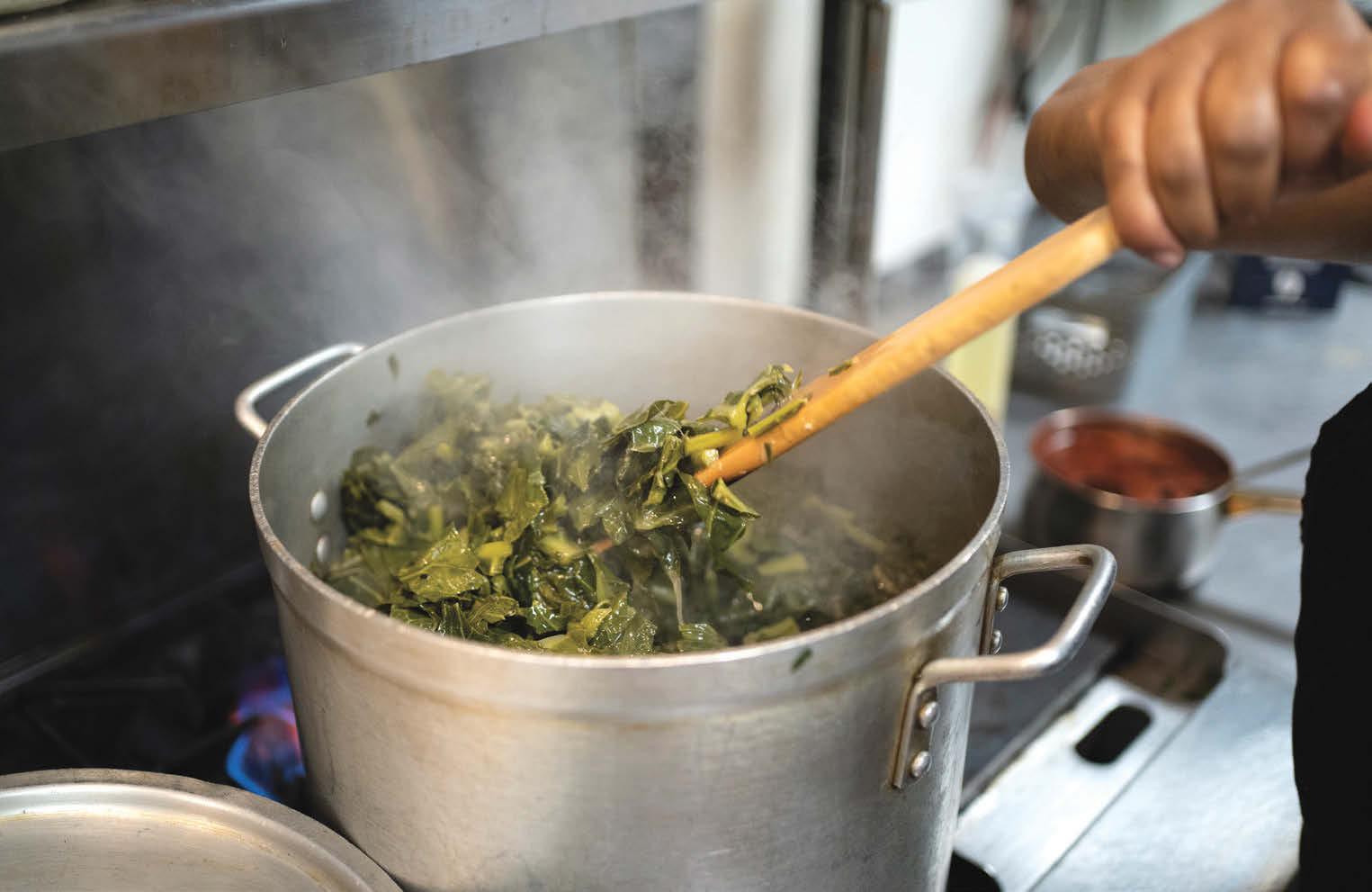
Perhaps it was Patrick’s enthusiasm for the milder dishes that bolstered Fasicka’s resolve to bring Ethiopian food into a restaurant setting far from where most members of Dallas’ Ethiopian community live. Her biggest concern when she first started offering Ethiopian-style dishes—through an in-store popup called Cherkose, named after her late mother, and later, when she wedged their flavors directly into Smoke’N Ash’s barbecue plates—was that fellow immigrants would judge her hybrids harshly. For instance, she didn’t know how they’d respond to items such as spareribs brushed with awaze, or liquified berbere, since pork is prohibited in both Islam and the Ethiopian Orthodox Church, the two primary
religions of Ethiopia. “Our fear was people [would] question how authentic this food is,” she says. “I can tell you one thing: I haven’t heard anything negative at all. Matter of fact, I remember [an Ethiopian customer] who had a couple of bites, and said, ‘This is genius.’ That was his exact words.”
Both Hickses hope to hear that phrase again when they open their next Smoke’N Ash in Ethiopia. One of Fasicka’s sisters spent the early summer months in Arlington learning how to prepare their signature rubs and smoke meats to their specifications. When she returns to Ethiopia to launch the restaurant’s second location, she’ll serve smoked chicken, mac and cheese dusted with berbere, and shiro, the beloved chickpea stew, abob with cubes of slowcooked brisket and topped with clarified butter. And she’ll tell her patrons that that’s how they do it in Texas.
This essay was first published in the Fall 2022 issue of Gravy, the Southern Foodways Alliance’s journal.
The Southern Register Winter 2023 Page 31
NITASHIA JOHNSON
South to Eden
On Tyler Keith’s The Mark of Cain
Punk rock legend Tyler Keith (MA 2011, MFA 2020) has now published his first novel. Keith’s revving engine of a book, The Mark of Cain, starts with a well-worn noir trope: a man named Ronnie Harrison, just released from prison, is trying to stay straight and clean, but he’s pulled by forces he can’t control back to the dark side. Everywhere he goes, to paraphrase Tom Neal’s character in Edgar G. Ulmer’s Detour, fate sticks out its foot to trip Ronnie. I don’t mean to suggest that this plays as a tired cliché in Keith’s hands—as in the best neonoirs, he reinvigorates the tradition with heart and a deep knowledge of the place he’s writing about. The place in The Mark of Cain is
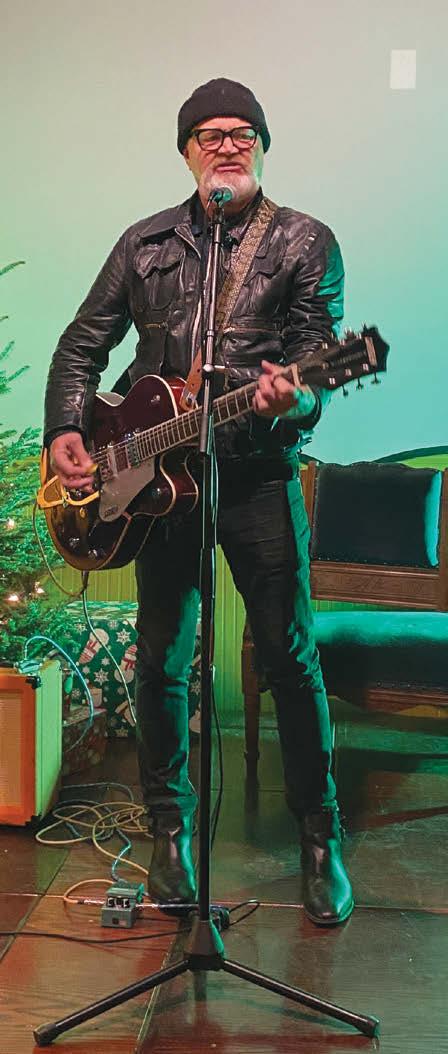
the Florida Panhandle. It’s the perfect setting for a sweaty, grubby noir tale. And Ronnie is the quintessential noir anti-hero.
After being released from jail, Ronnie is sent to the purgatorial Camp Eden, a Christian-themed halfway house populated by ex-cons and schemers. He has a daughter he’s estranged from, and he’s haunted by what that relationship could and should be. He also has deep family ties and a troubled history in Holmes County, a place sizzling with “moonshine, marijuana, and methamphetamines.” Bad decisions stalk Ronnie. So does the claustrophobic religious extremism he was raised into and continues to be surrounded by. When Travis Campbell shows up, a man with close ties to Ronnie’s gangster uncle, Albert, the pull intensifies. This too is a classic noir framework: the odds are stacked against Ronnie. How can he do the right things when the world won’t let him, when he sees corruption and hypocrisy rewarded? A man like Ronnie knows the score. Doom is closing in. He’s running in the red. A Biblical dread suffuses
The Mark of Cain. As with the best songwriters-turnednovelists (Willy Vlautin, Nick Cave, and John Darnielle jump to mind), Keith manages to evoke the feeling of his Christhaunted songs about outcasts and criminals, but he utilizes a whole different skill set in building the story. Keith’s love of crime fiction is apparent—there are echoes here of Jim Thompson and Charles
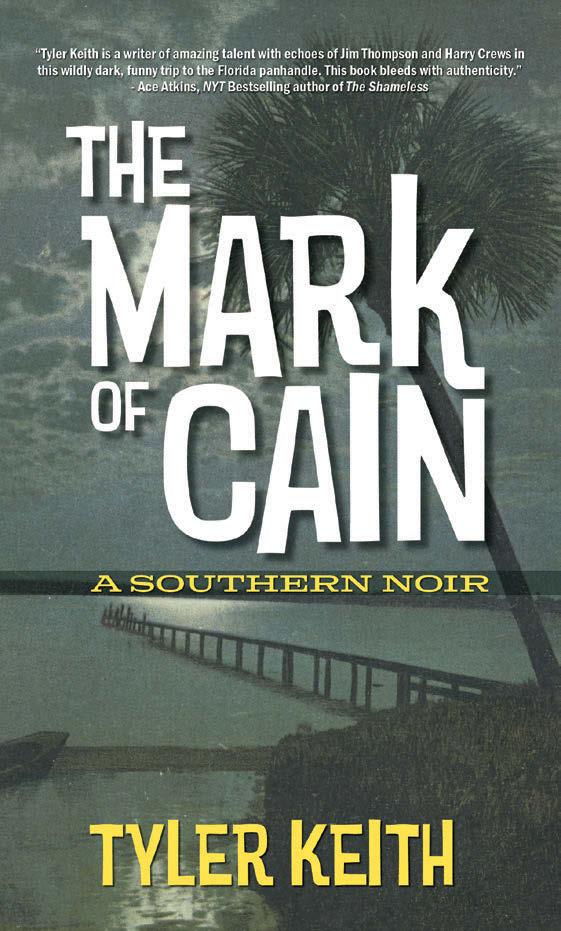
Willeford—and it’s also clear that he’s working in the tradition of writers like Flannery O’Connor, William Gay, and Larry Brown.
Preachers and sunsets and cigarettes, cheap motels and neon dives and denim jackets, undertows and outskirts, broken things and broken dreams and bad bloodlines, rough people in the rough South—this is the world Keith vividly portrays. The Mark of Cain is raw, guttural Panhandle punk noir with blood on its hands and lightning in its skies. You can feel the sweat on your skin, taste the cheap beer on your tongue, and—like Keith’s characters— feel yourself getting hungry for the electric charge of a good old-fashioned bad decision. Bring your dirty billfold—this book only takes cash.
Page 32 Winter 2023 The Southern Register ALUM BOOK REVIEW
William Boyle
SUSAN BAUER LEE
Tyler Keith
Jake Xerxes Fussell Releases Finest Album to Date
Good and Green Again Is a Sonic Excavation
As his thesis title, “Out of This World: Hearing Indigenous and Immigrant Music in the American South,” suggests, Jake Xerxes Fussell utilizes a folkloric approach to music creation, and he does it well. The 2013 graduate of the Southern Studies master’s program released his fourth full-length album titled Good and Green Again in January of 2022, via the eclectic North Carolinabased record label Paradise of Bachelors.
Not only is Good and Green Again Fussell’s finest collection of songs thus far, it’s the first release to feature original compositions from Fussell himself. Three instrumental tracks—“Frolic,” “What Did the Hen Duck Say to the Drake?,” and “In Florida”—penned by the North Carolina–based artist are sequenced consummately, acting as an emotional palate-cleansing between songs rooted in loss and lament.
In line with his previous releases, the core of the album is made up of Fussell’s own interpretation of songs passed down across generations in the oral tradition, where words and phrases are modified, subtracted, or added to suit the singer’s intent. Though Fussell grounds himself in songs that already exist, it would be a great disservice to categorize the artist’s work as “cover songs.” It’s more relevant to view the singer’s work as sonic excavation—a process of unearthing songs of a bygone era and applying them in a modern context, through which we can hear with catharsis just how much we have in common with those who came before us. Sentiments of love, loss, and insecurity are hardly contained to a single place in time.
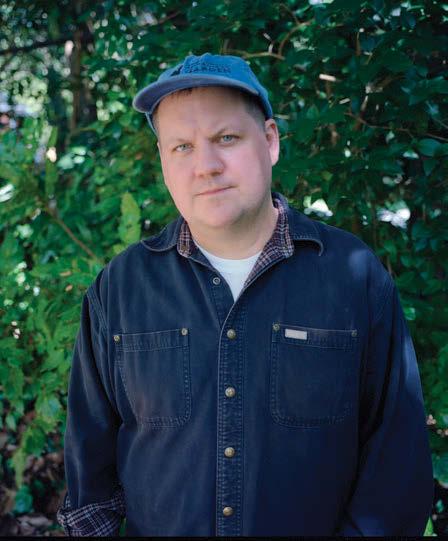
Indeed, Good and Green Again finds Fussell and his collaborators—most notably Will Oldham, a.k.a. Bonnie
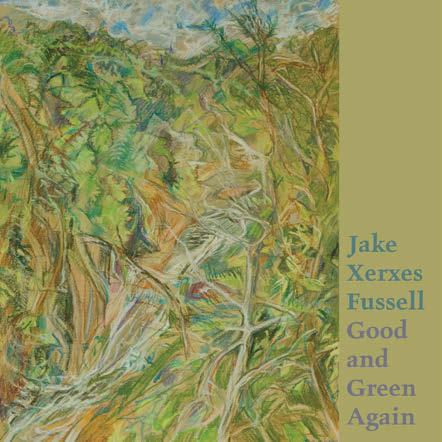
“Prince” Billy—in fine form as they cultivate new territory for these old songs to blossom. Each instrument is exacting in its purpose and in its place, with no single musician competing for the spotlight. With that said, Fussell has accomplished a rare feat by crafting an electric guitar tone that is uniquely his own, something we generally associate with the rock guitar gods of the 1960s and 1970s.
“Love Farewell,” the album opener, features the intoning background vocals from Oldham, as Anna Jacobson’s muted French horn and Nathan Golub’s pedal steel guitar fill out a soundscape for Fussell’s voice to take center stage. The rhythmic swagger of “Caribelle” underscores the protagonist’s late night (or early morning) vow to never touch the bottle again if his love does not forsake him. The goodnatured disposition of “Frolic” gives way to the stark economic duality in “Rolling Mills Are Burning Down,” a slow burn meditation detailing the darker side of the Industrial Revolution, in which a mill town loses its only
source of employment as more populated areas reap the benefits of technological advances. “The Golden Willow Tree,” an epic nine-minute, twelve-verse maritime tale surrounding the intentional sinking of a ship, brings to mind Dylan-esque longform lyrical explorations hinging on a two-line turnaround at the end of each verse. Good and Green Again comes to a cathartic close via “Washington,” whose lyrics are adapted from a poem about George Washington featured on a hooked rug by an anonymous artist in Richmond, Virginia, circa 1890. The slow dirge is highlighted by long, legato horn lines that, despite its Piedmont origins, evoke the mood of a New Orleans jazz funeral.
As with Fussell’s complete recorded output, Good and Green Again succeeds in bolstering this collection of old, obscure tunes from the subculture of record collecting enthusiasts into a modern, yet reverent, context. Patient but progressive rhythms meet lush but organic instrumentation to cultivate an almost trancelike atmosphere, making the album an attractive companion for the post-pandemic era.
As we head into the depths of the cold of winter, Good and Green Again leaves us with the gentle and muchneeded reminder that the warmth and rejuvenation of spring will surely come.
Kell Kellum
The Southern Register Winter 2023 Page 33 ALUM ALBUM REVIEW
TOM RANKIN
Jake Xerxes Fussell
Where Architecture, Sculpture, and Literature Become One
Study the South Publishes New Essay on Billy Tripp’s Mindfield
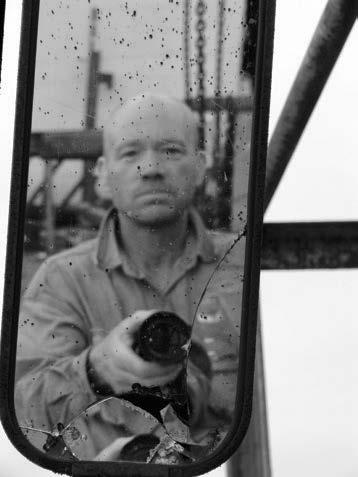
The Mindfield—the sculptural environment created by self-taught builder Billy Tripp in Brownsville, Tennessee—is an alternative to architecture, or at least a countermodel that brings a novel perspective to the discipline. Challenging all architectural principles, such as functionality, cost-effectiveness, building techniques, and materials, the Mindfield opens the way to new possibilities. An everevolving edifice not designed to be inhabitable, and whose raison d’être emerged late in the building process, the Mindfield positions itself at the antipodes of mainstream architecture, thus enriching the architectural discourse with its innovative experiments.

This new Study the South essay, “An Architectural Riddle: Billy Tripp’s Mindfield,” by Frédéric Allamel, explores how, by building the Mindfield, Tripp inaugurates a holistic art where architecture, sculpture, and literature become one, and whose complex narrative begs interpretation.
Frédéric Allamel teaches in the Department of Sociology at Butler University in Indianapolis. He holds doctorates in sociology (Sorbonne, Paris) and social anthropology (School for Advanced Studies in the Social Sciences, Paris). He was the guest editor of the Outsider Architectures issue of the journal Southern Quarterly (2000), which included an essay on Billy Tripp. He also authored Éros et l’architecture, published by the Paris School of Architecture (2019). His most recent book, Écoréfugiés au pays des bayous (Presses de l’Université Laval, 2020) focuses on environmental refugees in coastal Louisiana. Photographer Guillaume Allamel holds a Bachelor of Sciences (McGill University, Montreal) and is currently working on a master’s degree in architecture at Indiana University Bloomington. After working on environmental projects in Sri Lanka, Australia, and Paraguay, he worked with French “anarchitect” Michel Rosell, focusing on emergency habitats and bio-architecture.
Visit Study the South at www.studythesouth.com to read Frédéric Allamel’s “An Architectural Riddle: Billy Tripp’s Mindfield.”
Study the South is a peer-reviewed, multimedia, online journal, published and managed by the Center for the Study of Southern Culture at the University of Mississippi. Founded in 2014, Study the South exists to encourage interdisciplinary academic thought and discourse on the American South,
particularly through the lenses of social justice, history, anthropology, sociology, music, literature, documentary studies, gender studies, religion, geography, media studies, race studies, ethnicity, folklife, and visual art.
Study the South publishes a variety of works by institutionally affiliated and independent scholars. Like the Center for the Study of Southern Culture, Study the South embraces a diversity of media, including written essays with accompanying audio, video, and photography components; documentary photography; and video projects. Queries regarding book review submissions are welcome.
Those interested in submitting work to Study the South, please email editor James G. Thomas Jr. at jgthomas@olemiss.edu.
Page 34 Winter 2023 The Southern Register ALUM ALBUM REVIEW STUDY THE SOUTH
CONTRIBUTORS

Brett J. Bonner is editor of Living Blues
William Boyle is the author of five novels: Gravesend; The Lonely Witness; A Friend Is a Gift You Give Yourself; City of Margins; and, most recently, Shoot the Moonlight Out, listed by CrimeReads as one of the ten best noir novels of 2021. He has also published a story collection, Death Don’t Have No Mercy, and a novella, Everything Is Broken. He edited the noir volume of Nicolas Winding Refn’s byNWR.com and writes a monthly movie column for Southwest Review
Rebecca Lauck Cleary is the Center’s communications specialist. She received a BA in journalism from the University of Mississippi and her MA in Southern Studies.
Lucy Gaines is a second-year graduate student in the Southern Studies program and a production assistant for the Oxford Conference for the Book.
Tina H. Hahn is director of communications at the University of Mississippi Office of Development
Nitashia Johnson is a Nigerian-American, multimedia artist and educator from Dallas, Texas.
Kell Kellum is the Center’s operations assistant and a touring and studio musician. His recordings, including his latest album, See Yourself In, is available on Bandcamp and Spotify.
Katie McKee is the director of the Center for the Study of Southern Culture and McMullan Professor of Southern Studies and English.
Hanna Raskin is a Gravy columnist. Her newsletter, The Food Section, is published on Substack.
Lisa Goodwin Stone is the strategic communications director for University Marketing and Communications.
In Memoriam
David Wharton
August 9, 1947–September 25, 2022
W. Kenneth Holditch
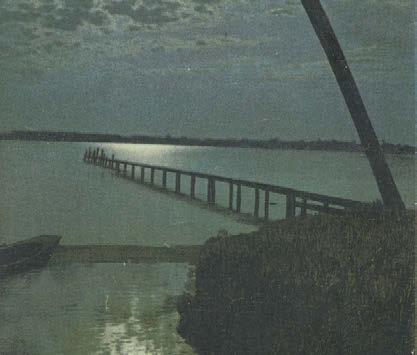
September 18, 1933–December 7, 2022
county, FLORIDA where the family business, means business.
In a world that has changed much during the six years he’s been in prison, Ronnie Harris struggles to piece together a new life from the wreckage of his old one. As a condition of his early parole, Ronnie must stay at a halfway-house for ex-cons called Camp Eden, where things are not exactly what they seem. A man from his past shows up to bring Ronnie back into the life that led him to prison the first time — a rough world of moonshine, marijuana, and meth, which also happens to be the Harris family’s business. Eventually, Ronnie’s struggle for a new life brings everything to a head in a violent revealing conclusion.
Tyler Keith’s debut novel is delivered in a deft hand, detailing the landscape of his native Florida panhandle as intimately as his complex characters.
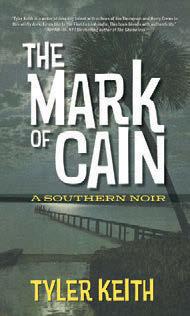
“Tyler Keith is a writer of amazing talent with echoes of Jim Thompson and Harry Crews in this wildly dark, funny trip to the Florida panhandle. This book bleeds with authenticity.”
- Ace Atkins, NYT Bestselling author of The Shameless
cooldogsound.com
The Southern Register Winter 2023 Page 35
greetings from
in
Order a copy from
store or from
Available in Mississippi at Square Books in Oxford, Turnrow Books in Greenwood, Lemuria Books in Jackson, and T-Bones Records
Hattiesburg.
your favorite independent book
Cool Dog Sound.
The University of Mississippi
Center for the Study of Southern Culture University, MS 38677
INCLUDE MAILING LABEL WHEN MAKING ADDRESS CHANGES.
Please help us reduce waste and postage costs. Complete this form and return it with your mailing label.
o Contact person changed
o Address wrong
o Name misspelled
o Received more than one
o Add my e-mail to your list
o Delete me from your list
Friends of the Center
Please give us your correct information:
Name Address City State Zip E-mail e-mail: cssc@olemiss.edu • www.southernstudies.olemiss.edu
Gifts to the Center for the Study of Southern Culture benefit teaching, publications, and outreach at the first interdisciplinary research center dedicated to investigating, documenting, interpreting, and teaching about the American South. Thank you for remembering us as you plan your charitable giving!
The Center’s Friends program provides essential general operating support for a number of Center endeavors. Visit southernstudies.olemiss.edu to learn more.
I/We would like to contribute $_________ to the Friends of the Center.
o Enclosed is my check.
o Please charge my credit card.
CREDIT CARD: o Visa o MasterCard
o AmericanExpress
To make a gift online scan here. Not sure how to use a QR code? Open the camera on your smartphone and scan here. Yes, it’s that easy!
Account Number Exp. Date________ Signature____________________
Name (please print)
Address City State Zip
Phone E-mail
Please mail this form to: The University of Mississippi Foundation/CSSC • 406 University Ave., Oxford, MS 38655
MAKE A GIFT ONLINE. Visit www.southernstudies.olemiss.edu/Giving

Please help us reduce waste and postage costs. PRSRT STD Non-Profit Org U.S.Postage PAID Senatobia, MS Permit No.76 Please give us your correct information:

 Editorial assistant: Margaret Gaffney
Editorial assistant: Margaret Gaffney
 Graphic Designer: Susan Bauer Lee
Graphic Designer: Susan Bauer Lee
























































 By Hanna Raskin
Photos by Nitashia Johnson
By Hanna Raskin
Photos by Nitashia Johnson










